#wu qian ying
Text

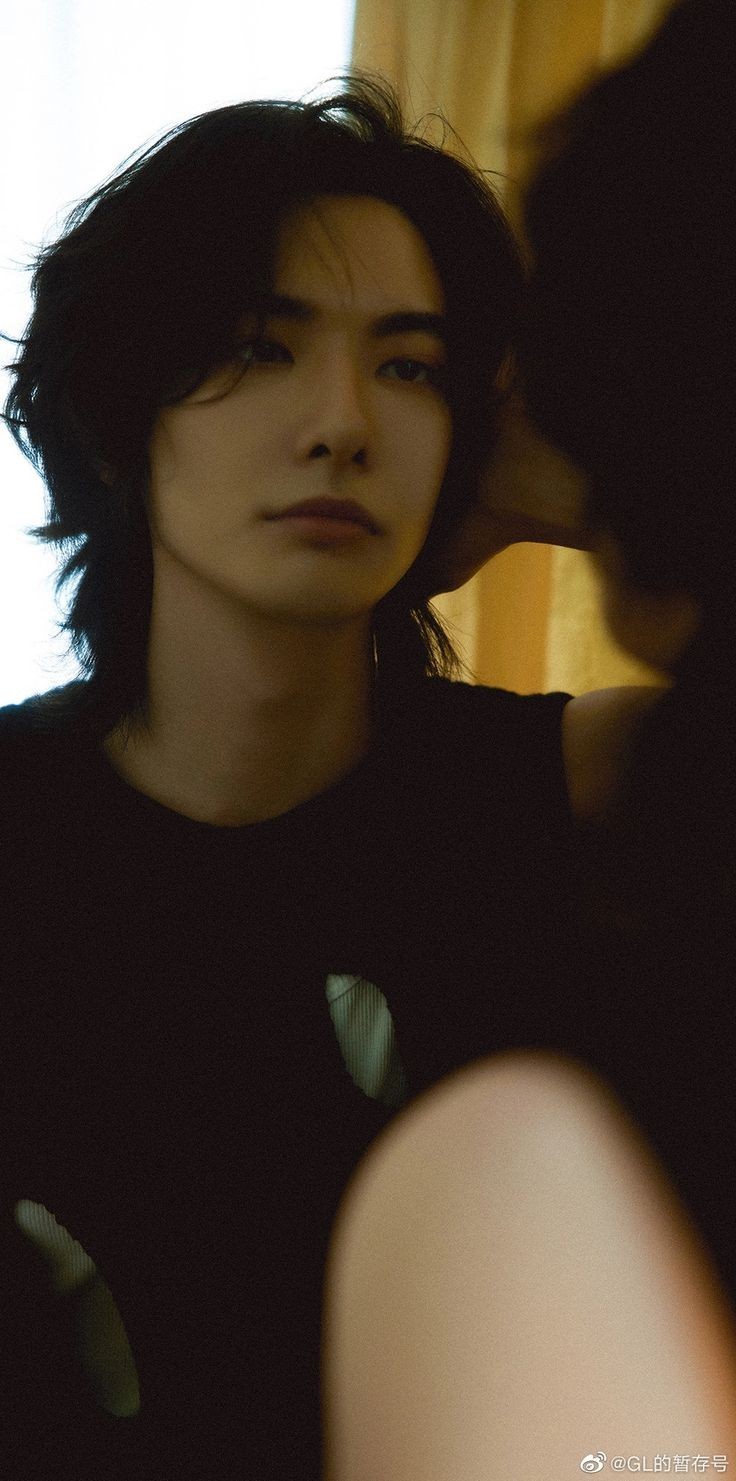

If there's ever a Link Click live action Im begging on my knees for this cast
40 notes
·
View notes
Link
Chapters: 1/1
Fandom: 一念关山 | A Journey to Love (TV)
Rating: Teen And Up Audiences
Warnings: Creator Chose Not To Use Archive Warnings
Relationships: Chai Ming & Qian Zhao (A Journey to Love), Qian Zhao & Li Tongguang, Qian Zhao & Yu Shisan (A Journey to Love)
Characters: Qian Zhao (A Journey to Love), Yu Shisan, Sun Lang (A Journey to Love), Yuan Lu (A Journey to Love), Ning Yuanzhou, Chai Ming (A Journey to Love), Ren Ruyi, Li Tongguang, Yang Ying (A Journey to Love), Wu Di (A Journey to Love)
Additional Tags: Grief/Mourning, Major Character Undeath, Major Character Injury, Revenge, Alternate Universe - Canon Divergence, Everybody Lives, Canon Rewrite
Series: Part 1 of just this once, everybody lives
Summary:
Ning-tou’er is the next to see his majesty, and his meeting nets much the same result as Yang Ying. The emperor saw Chai Ming fall, one arrow through his arm and another in his chest. He will not absolve the brothers of their false treason until he has been safely delivered home, because the emperor is more important than the spirits of the men who died for him.
Qian Zhao buries his feelings about that deep inside with the pit of rage that has been simmering since he received his final letter from Chai Ming with the formal one reporting the deaths and apparent treason of sixteen brothers. He brushes off Yu Shisan’s subtle probing and Sun Lang’s more overt checking-in.
Instead, he devotes himself to ensuring they can get the emperor out of the An prison. Once the emperor is out of the prison, he can avenge his missing brother and the other dead men of Liudao Hall.
(Or, Chai Ming's body is not among those Li Tongguang buried.)
#fic#a journey to love#ajtl#qian zhao#chai ming#li tongguang#yang ying#ren ruyi#ning yuanzhao#yu shisan#sun lang#wu di#yuan lu
19 notes
·
View notes
Text
The real-life Wei Wuxian and Jiang Cheng - A tale of two brothers
I’ve been asked this before when talking about topics such as Qiongqi beast and its symbolism in Wei Wuxian’s death, the various hints that Wei Wuxian might be long lost royal, the historical background behind the Yin tiger tally, and why the tiger symbol seemingly being bad juju for Wuxian.
It’s all connected, of course, through a historical basis. I have some free time today, so let’s get!
Meet Wei Wuji, also known as Lord Xinling, the second Prince of Wei Kingdom (circa 2nd century BCE), the first person in recorded history to handle a Tiger Tally, and very very likely to be the real-life basis for Wei Wuxian.

How very likely? Well, there’s no word of god, of course. But I’ll just let the facts speak for themselves, and you be the judge.
1. Let’s start with names:
Wei Wuji 魏無忌
Wei Wuxian 魏无羡
Wei 魏 = Wei 魏. An exact match. As a matter of fact, Wei Wuji’s Wei kingdom is the first kingdom to bear this Wei name in recorded history.
Wu 無 is the traditional form of Wu 无. In the Japanese, Taiwanese, and traditional Mandarin versions, Wei Wuxian is also written with this Wu 無.
The original meaning of Ji is ‘envy, hatred’ in ancient times (as per the Kangxi dictionary and the original text of the Romance of the Three Kingdoms). In modern times, the meaning of Ji has morphed to represent ‘fear, avoid’ more than ‘envy’ and ‘hatred.
The meaning of Xian is envy in both ancient and modern times.
So Wei Wuxian is effectively an alternate way to write Wei Wuji.
2. The life and death of Wei Wuji and the first Tiger Tally recorded in history:
a. Genius second son, a friend of many, the brightest 4th Young Master:
Wei Wuji was born the second son of King Wei Zhao and the second prince of the Wei Kingdom. He had an elder half-brother: Wei Anli, crown prince and, afterward, King of the Wei Kingdom.
Despite being the younger brother and not the heir to the throne, Wei Wuji eclipsed his elder brother in talent, courage, military and political acumen, and sheer popularity.
Wei Wuji was also unique among his period peers for being very open-minded when it came to castes. He lived during the warring state period, during which there existed an extremely strict caste system where the lower and slave castes didn’t even count as humans and could be executed for silly things like being in the presence of their higher caste masters and ‘tainting the air’ they breathed. Not only did Wei Wuji give no thought to this caste system, he would often go out of his way to listen to the lower castes and treat them with respect as if they were of the same caste.
In one legend (Sima Qian Historical Records, circa 135 BCE), Wei Wuji walked away from a banquet raised in his name to go sit and talk to an old, wise prison guard (Hou Ying). He would then invite this prison guard to his banquet with the highest of honor, even giving the guard his seat (noble seat) and driving the chariot in his place. When other noble banquet guests protested this lowly guard’s presence by vilifying the old prison guard for not knowing his place, Wei Wuji stood up for him and gave him the highest of toasts, thus silencing the guests.
In another legend, Wei Wuji hosted over 3000 guests in his princely fiefdom. He famously declared that so long as a person had ambitions and a will to do good in his heart, then Wei Wuji would receive him in his hall as a guest and friend regardless of what caste he was or from where he came.
For this, Wei Wuji was known as Lord Xinling and held the loyalty of many in his own brother’s kingdom.
He was one of the Four Gongzi of the Warring State Period (lit. Four Young Masters, Four Noblemen, Four Princes. During this period, Gong was a distinct noble class comparable to Duke. So this can also be understood as the Four Dukes). He was seen as the brightest among the Four.
b. The tale of the first Tiger Tally in recorded history:
Sima Qian Historical Records told the tale of the first Tiger Tally as such. It was a time of chaos where the strong trampled the weak, and big countries gobbled up small ones. Wei Kingdom was one of the seven strongest of the time. This meant that their position was precarious.
Around this time, Wei Wuji’s elder brother, Wei Anli, had ascended the throne and adopted a policy of avoidance. Despite the ferocious fighting, the political struggles, and the easily foreseeable threats, Wei Anli was of the thought that if he did nothing and just closed his door, then trouble wouldn’t come knocking at his door.
But this was not so. In 260 BC, the state of Qin (of Qin Shi Huang, yes) besieged the state of Zhao and captured the King of Zhao (who was related to the Wei through marriage). Zhao sent for Wei’s help. But King Wei Anli didn’t want to be Qin’s next target, and so refused to send aid.
This was where the Wei brother’s opinions diverged. Wei Wuji saw that Qin was growing unchecked in power, and if not stopped, then Wei would be next on the chopping block anyway. So not only was Wei politically and morally responsible, but from a long-term strategic standpoint, Wei must respond if they didn’t want Qin to grow too strong and eventually be invaded and absorbed into Qin itself.
The only problem: Wei Wuji had no right to make this decision. And regardless of his insistence and explanation to his elder brother, Wei Anli would not be moved. Meanwhile, the state of Zhao sent ever more desperate pleas for help (from the Wei’s sister who was Zhao Queen at the time no less).
Pressured from all sides and with no alternative, Wei Wuji made a decision that would go down as a first in history. He would steal the Tiger Tally from his King’s hand, commandeer the army, and ride to answer Zhao’s pleas for help himself.
This would eventually become the historical example of military brilliance that required the usurpation of the immediate superior. Wei Wuji’s own name would go down in history as brilliance that eclipsed his station.
I’ve written on the tiger tally before. So I won’t write more about this now.
To summarize things, Wei Wuji’s plan worked. Zhao was saved. But at the cost of a rift between brothers. After lifting the siege, Wei Wuji stayed in Zhao for ten years.
He would only go back to Wei Kingdom when Wei was besieged by Qin in purported retaliation, bringing with him the 3000 guests that stayed loyal to him and went to Zhao for help. Wei Wuji successfully lifted the siege of Wei and the two brothers reunited after a decade of not seeing each other. They cried and embraced one another. Wei Anli made Wei Wuji the Grand General of Wei, and he then took over the safeguarding of Wei against the onslaught of Qin.
c. The tale of two brothers. Or, as the Chinese say, the King has no brothers. The King has no equal. Fool is he who dares think himself the King’s brother and equal.
Despite the fact that the brothers reunited, this tale does not end well.
Wei Wuji was a brilliant general and a ferocious warrior. But more than that, his reputation far eclipsed his elder brother the King. Ever since they were young, Wei Anli had had to suffer being under the shadow of his little brother, despite his being the heir and then King.
Wei Wuji not only successfully repelled Qin, but he also started making a plan to counterattack and nyx Qin Empire before it could take shape. Because his reputation was such that countless warriors and scholars answered his call to arms. Five other kingdoms also answered his request for an alliance.
The King of Qin was deathly afraid of Wei Wuji. Violence did not work, so the Qin King attempted the other way: through schemes and manipulation. The Qin King sent enormous fortunes and gifts to Wei Anli under the guise of normalizing relations between the two kingdoms and potential peace. Along with his gifts, he would send people, spies of all ranks and castes, to infiltrate Wei Anli’s court and territory. These spies would continuously do things to increase the friction and gap between the two brothers.
Some of them would falsely congratulate Wei Wuji for having ascended to the throne.
Some more would treat Wei Wuji with more deference than Wei Anli.
Some would then whisper into Wei Anli’s ears: “Prince Wei was away from his own Kingdom for 10 years. And yet when he calls, thousands in Wei Kingdom answer him. Why is it him and not you, the King? Do your people only know Wei Wuji and not Wei Anli. Are you sure it’s still you who is the King? He should know his place!”
Wei Anli… fell for their tactics. So he demoted Wei Wuji and effectively isolated him from the court. He would then give this position to someone else. So, of course, the plan to counterattack Qin with the 5 ally kingdoms fell apart miserably.
Wei Wuji was heartbroken by his own brother’s action. He descended into alcoholism and purportedly died from depression and failing health. In other words, he died from the betrayal of someone who saw as a brother but that same brother saw him not as a brother but as a rival and a carrier of problems.
Wei Anli died in the same year as Wei Wuji, purportedly from illness.
18 years later, just as Wei Wuji predicted, Wei Kingdom was conquered and subsumed by Qin. Qin would then go on to become the first true Empire in Chinese History.
Wei Anli was not technically the last monarch of Wei. But it’s historically agreed that he’s the one who laid the foundation for the fall of Wei due to his suspicion of his own brother and removing the one person capable of turning the tide of Qin.
So, I will leave this here for you to come to your own conclusion and come back another day for analysis on the parallels between history and story and a few other somewhat ironic anecdotes that I didn’t include here (Like the fact that between the 2 Wei brothers, it’s the real-life Jiang Cheng, Wei Anli, that was the gay one. How gay are we talking about? So gay he’s the origin of Chinese gay porn)
687 notes
·
View notes
Text
final leg of a journey to love thoughts!! (eps 35-40). this got so gd long so under a cut it goes. spoilers, of course:
PLOT STUFF/PACING
pacing for the plot definitely got shredded in the last chunk, which is a damn shame because otherwise i've been finding the pacing pretty much perfect. eps 35-37 in particular felt like they could have been like a 10 episode arc. ep 38, which mostly dealt with wu palace politics, should have been cut or streamlined imo and more time given to the characters we've actually been riding along with the whole story. by the time we get back to the pregnant empress, prince danyang, the first prince whose name i dont even remember, and the prime minister, i do not care about any of them and i think this subplot was simply just trying to fit too much shit into one bag
that said, this show still let the emotional moments hit and breathe and linger. i love the grief for the fallen liudao comrades as we go, as well as the less heavy but still emotionally important moments like yang ying and tongguan bonding over their upbringing. and we got a wedding /;3;/!!! for this show, the relationships and characters matter more than the storyline so im not mad about anything at all
side note: it's so gd millennial to have a story about a bunch of 30 something year olds who want to fake their deaths and retire into obscurity but instead they go and die for a boss they hate
CHARACTER STUFF
this show consistently brought a lot of depth to its side characters (and side side characters!!). i said it in an earlier post, but it bears repeating that even someone like deng hui i didnt expect anything from, but he got such good development and writing that he became a stealth fave. his dying words essentially being "dude, quit fucking around" ? iconic.
i didnt like tongguan as much as everyone else, so im pretty meh about everything regarding him. the attempt to force-wed ruyi was tonally really weird and didnt make sense (i assume there was some cuts made surrounding it). but LOL at him reusing all the outfits and decor immediately for his wedding to yang ying. baby duke, you tacky motherfucker. i ultimately think yang ying deserves better than him, but the good thing is that she knows this, so she'll be able to hold her own and then some entering into this partnership
shisan really was the heart in a lot of ways--the mom to yuanzhou's dad for the liudao. i was not expecting him to break my heart the way he did, but the fact that he held both qian zhao and sun lang as they died and then tried his best to remove yuan lu from harm and saved chu yue and was just very much a nurturer all the way through got me. his character couldve been cheap comic relief but the writing + performance really elevated him into one of the (imo) most memorable wuxia characters. his line wondering who would get to behead his beautiful skull!!! and how his mantra was always that he was going to drink the best wine, see the most beautiful women, and make the best of friends and he dies having lost the ability to see and having just had wine in memory of qian zhao, yuan lu, and sun lang. like. shut up!!
ruyi and yuanzhou were both so great and they're gonna be the drama OTP to beat forever. i loved the gender reversals, that they both were so respectful of each other, and that they also felt very mature in how they handled things and communicated. they were really interesting characters both together and apart and that's always a win-win. they had a schroedinger's ending where it's not super clear if they're alive or dead (i interpreted it as the latter), but what's kind of beautiful is that either option is satisfying to me. if they both died, they're reunited and with their comrades and the story is truly about the journey and the meaningful short connections we have. if they both survived, it's a bookend with the beginning where they each faked their deaths to escape. A+
COSTUMING
i gotta just separately mention the costuming for this show because it was 15/10. the textures, shisan's accessories, the way red became integrated with yuanzhou's wardrobe and blue with ruyi's. the details on the liudao name amulets!! SO GOOD. i love when characters' clothes tell a story on their own
overall i just really loved this drama it is probably my favorite wuxia ive seen so far! it's gonna be in my brain for awhile lol feel free to send fic prompts if you've made it this far :'D
67 notes
·
View notes
Text

THE WEAPON OF THE DEITY THAT GOES INTO HISTORY * - "THE WHEEL OF FIRE AND WIND"
When it comes to the weapons "Wheel of Fire and Wind" or the fenghuo moon ( ору), people immediately remember the deity of Nechi, who possesses immense abilities.
The hometown of Nezha - Tangu, Tianjin, Dagucou, where in modern history war ships of allies of Britain and France were shot down. Now Tianjin Xingan is one of the five largest ports in China. It is said that Nache was only seven or eight years old when he worshiped the holy Tao deity Tai Yi as his teacher. He learned from him the wonderful science of magic in the use of natural elements as well as ways of owning different weapons. He is also called the Octopus Nechja. It is believed that you cannot leave your hands empty, so Master Daos Tai Yi gave him eight types of weapons: one hand holds the Qiangkun Tuan weapon ( ль), or the "trigram ring of Qian and Kun", the other hand holds the Huntian Lin ( тому) or the "Matter Mixing the Sky", another hand holds a bar of gold jing zhouan ( ),), and with two hands holds a weapon of Huotsian ( )) or "spear with a fiery blade". And three free hands perform such functions: one hand held a blanket of sacred fire of shenhuo zhao ( жа), and the other two held the yingjian ( д) or the Ying and Yang Sword.
Many of his weapons spread around the world: the most popular of them are the Huociang ( из) or the "spear with a Flaming Blade" and the Ying Jian ( ём) or "Ying and Yang Sword". It is believed that a piece of silk fabric of the mixed sky is owned by the martial arts demon Su Huazza ( е), but the cost of golden brick bars is too high to be used in the world. Working with a shenhuo zhou ( ш) blanket is quite difficult and lost. But here's an object-weapon called fenghuo moon ( 火) or "wheel of wind and fire" found a use in the bagua style, which will be discussed later.
Along with the bagua zhang weapons, bagua fenghuo lun ( 子) or "the wheel of eight trigrams of wind and fire", it contains many pairs of unique and secret weapons, such as: ziu yuanyang yue ( )) or the "tangerine duck axes of Tzu and Wu characters", bagua ziu jijua yiang zhui ( н) or “chicken claws of eight triggram characters Tzu and Wu Yin and Yang", bagua golen jian ( голя) "sick knife eight trigrams" and other pair, small and secret weapons. All of these species are quite ancient, and many of them have been summarized, processed, and complemented by the creator of Baguazhang Dun Haichuan ( Все). The Baguachian weapon "Wheel of Fire and Wind" or fenghuo moon ( О) is a ring with a diameter of about 30 cm. Three quarters of the rings have blades inside and out, and one quarter has a hand-grip handle. There are special tips on each end of the handle. n. "snake spear" with blades on both sides, with sharp ends, they are about 70 cm long, 3 to 4 cm wide and about 1 - 2 kg weight.
There are many types of these weapons (see. Click here: @TAG). There are options when there is a "half-moon"-shaped blade inside the ring, there are options when there are many "teenage blades" and many other options at the edges of the ring. Often these different variations were used in different Dao chiao sects, from here the appearance of these species can be traced in Baguachiang, so it is likely that Dong Haichuan has already used much of what was known. However, in a variant typical of Baguachians, there are these snake-shaped blades going in different directions from the circle itself.
The fenghuo lun technique ( нь) is extremely dangerous and difficult (out of an unusual form) for the performer itself and is not usually learned by all in Baguachiang, but only by those who have attained high mastery of gunfu and ude ("fighting virtue") and are mastered after the basic material of the system has been passed.
They can be used to perform technical actions such as: qi ( про) "stab like a stud", tza ( () "punch", tiao ( е) "lift", chuan ( ствия) "walk through", gou ( их) "hook", hua ( () "cut-scratch", with the wheel or disk itself, lun ( 钩) can mo ( тере) "scrub or cut", la ( пере) "tighten", hua ( пом) "cut", kan ( зу) "chop", pai ( е) "hit", tao ( кан) "throw" or "roll-put on", ge ( за) "mow-cut", suo ( ") "lock", na ( пай) "grab-hold", dai ( () ""belt-grab", then ( )) "support from below", is ( вать) "cut" and others. The technique of using the "Wheel of Fire and Wind" is also unique because its unusual shape can catch what is called out of the blue (chuci bui / 胜不 ).) and cannot be safe and defended (fanbu shenfang / за不 出).
The practical use of the fenghuo moon ( со) is based on the harmonized work of the feet (t. e. movement technique), whole body work (shenfa / ке) and directly the bagua palm technique (t. e. basic work in the making of 8 palms). In order to use this type of weapon, you need to have a strong and refined back, strong hands and precise eyes, and use it carefully, so it requires serious practice. Each hand holds a circle, it flies up and down, turns and spins, moves wavy and folds unexpectedly, twists and drills, constantly strikes vertical and horizontal blows. The "Wheel of Wind and Fire" is constantly moving together and in harmony with the movement of the whole body, which changes with the disks. The shape is like a colorful phoenix, it is elegant and beautiful, and in its diversity, it is like a dragon!
Today, the weapon "Wheel of Fire and Wind" or fenghuo moon ( .) is so-called, on the brink of extinction. Rarely you see him in action. And those who practice with him today are mostly followers (chuanzhen / ним人) of the Tai Yi Men sect ( эн) or "Lord Tai Yi Gate". Therefore, I hope our modest labor will not let it disappear completely and it will reborn like a Phoenix (fenghuan / ф) and dance like a Dragon (moon / /).
P.S.:
Article "CHINESE DEITIES: NEZHA / Я /": https://www.facebook.com/groups/baguamen/permalink/3828269237195459/
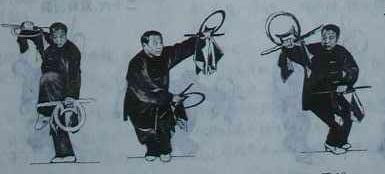
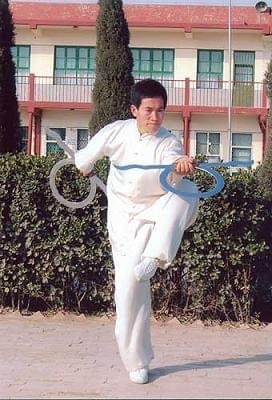
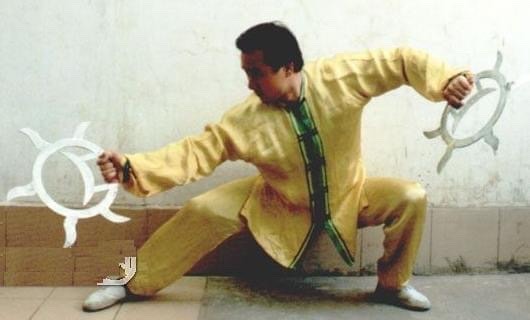
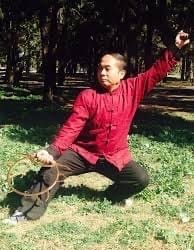
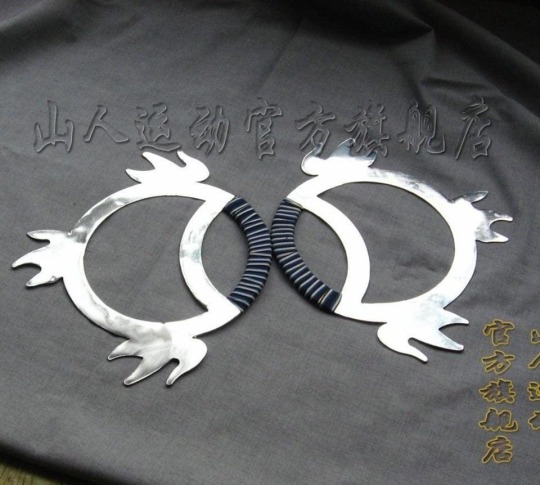
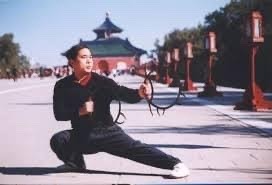

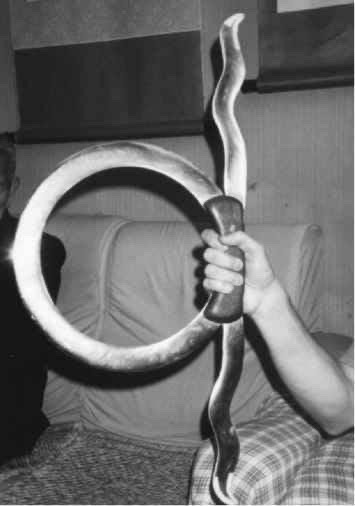

32 notes
·
View notes
Text
So I dragged myself kicking and screaming and, yes, mostly in denial, through the last episodes of A Journey to Love.
My thoughts can be summarized as follows:

Obviously this is mainly due to me being horrifically traumatized by Yuan Lu’s death. After all, they told us from the get go he wouldn’t live to 20. They made it clear he had a deadly heart disease. And then. They had the nerve. They had the audacity. They had the actual fucking bahoonga BALLS to follow through!?
But then I found myself sobbing at literally every good guy death scene, plus all of the mourning scenes. The latter was in large part thanks to Alen Fang's acting - deepest apologies to him for just referring to his character as 'the slutty one' for the majority of the show. Not that I was wrong. Also thanks to strong performances from He Lan Dou for Yuan Lu's death.
Anyway so I need to add this gif x4 for the Liudao Hall babies:
Qian Zhao, da ge, who made mistakes but always did right in the end
Sun Lang, who just wanted to hold something fluffy at the end, dying a hero
Yuan Lu, who died in his princess's arms after running to deliver a letter rendered useless by the Emperor of An's greed.
Yu Shisan, who lived as he lived and had such a happy moment with Chu Yue right before it all became irrevocable.
When they added Yu Shisan to the snowball fight, I just about lost it. Liu Yuning's acting there - having the realization about Shisan's death as he watched them play in real time was so well done. Really hurt.
Plus I'll make a couple of versions with edits.

For the Wu Emperor. I knew it was gonna happen from the spoilers but damn, him genuinely learning the value of friendship and brotherly love made me root for him. Dude did not deserve to go out like that. Thank goodness for the magic of CDramas where he lived just long enough to pass on his will to Ning Yuanzhou, and do one last act of good.
It also ensured Duke of Chu was able to pass on his command to his daughter, Chu Yue, before dying of the same (was not clear if her bro died or not, or if dad was always going to choose her).
And for Deng Hui. Started out thinking he was just a sexist bastard. Turns out he was one of the most principled characters in the show.
Their deaths didn't make me cry, but I respect them.
Also loved Chen Du Ling's (Empress of Wu) small part in this. I may not like all of her characters but she can deliver a scene and hold a room. It was a bit cathartic to see her put every man in their place, and basically decide the fate of two countries, even though her lament that she'd only ever have power through another held true.
Ah Ying, my baby girl. This is a character that could have turned people off from the beginning. Thanks to strong writing and stronger acting, it did not. I was super impressed with He Lan Dou. She can dial it up and dial it down in a single take, and can play big dramatic scenes with a subtlety that some older actors cannot grasp. This was the first thing I've seen her in, though for her and Chen You Wei (Yuan Lu) I might watch Tiger and Crane if someone tells me it's good.
I still think Li Tongguang is a perverted and creepy child, who never managed to learn (except in literally the last ep), but at least I trust that he will treat Ah Ying well. I don't hold it against him for screwing up the battle - he was trying to be benevolent but made a bad choice.
The main couple win it for me this year. What an inspired pairing. They beat out heavy hitters including Bai Lu x Everyone which was near impossible. Something to do with letting Liu Shi Shi use Liu Yuning's height against him at every possible moment. Also the 'if you die, I'll finish the job and then follow you' is my favorite dynamic. I swear when Ruyi threw those bombs, NOT NEEDING TO HAVING ALREADY SUCCEEDED AT KILLING THE KING AND PRINCE, just to join him, y'all I died. Good for whoever posthumously gave her the Marquis title on her own (not just furen) - couldn't tell if it was Li Tongguang acting as regent or Dayang (great shot of those two at the end).
The final episode was one of the best final cdrama episodes I've seen. I might have to make another post about that. In sum, despite losing a large portion of the well-loved cast, the remainder gave a world-class finale. The visuals were incredible (explosions are my favorite). The final scene was beautiful (though I'm a bit surprised they gave it to Chu Yue instead of Ah Ying who knew all 6 of them closely).
#a journey to love#一念关山#yi nian guan shan#liu yuning#liu shi shi#he lan dou#alen fang#fang yilun#chen youwei#ning yuanzhou#ren ruyi#yang ying#yu shisan#yuan lu#li tongguang#qian zhao#sun lang#chu yue
43 notes
·
View notes
Text
Once again being annoying about a journey to love on the TL:
I think one reason why I still cannot get over AJTL is because!! of how beautifully and realistically it portrays the relationships between characters, and more importantly, it does not outright shove the main pairing into our faces. their relationship took time to develop which made it more realistic imo, and is a nice contrast to a lot of shows these days that seem to have characters falling in love in the span of two episodes.
(I've made a tl;dr a while ago here)
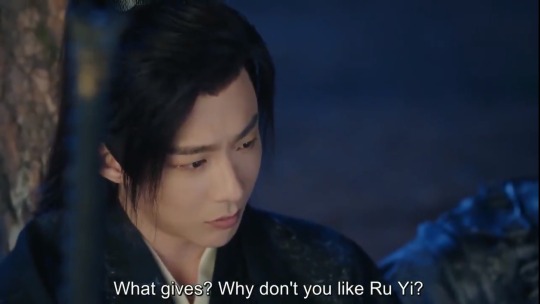
Episode 7
As in- the main couple is shown quite a bit, yes. They get their fair share of screentime, but the drama also focuses on the friendships between the liudaotang squad, the sibling dynamics between NYZ and YY and how it parallels with RRY and LTG.
It really highlights the different kinds of love that one person can have in this life, like the platonic love between YSS and NYZ (imo), the familial love between YL and NYZ, the romantic love between RRY and NYZ, all of it really balances out and i love that.
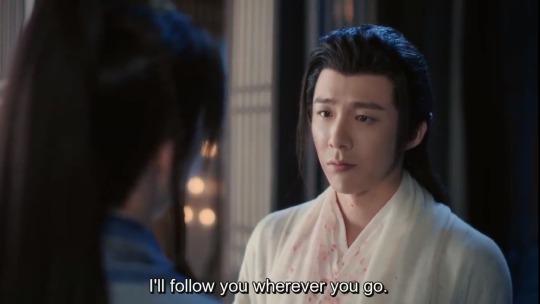
Then there is also the fked up obsessive love that LTG has for RRY, and the drama shows that you can still recover from that (we are ignoring ep 37 here), it shows that you can still move on from that and grow from there- you may not necessarily forget them and that is okay.


Episode 26, 36
"my master is the only woman I'll ever love."
Then theres also the love for the country, embodied by how LTG and YY entered a loveless marriage for the sake of their countries (ep 37), and for the sake of protecting what their loved ones are fighting (and died) for.
It is also, arguably, shown by how Qian Zhao died to save the King's life for the sake of maintaining peace in Wu, even though his entire objective was to kill the King.
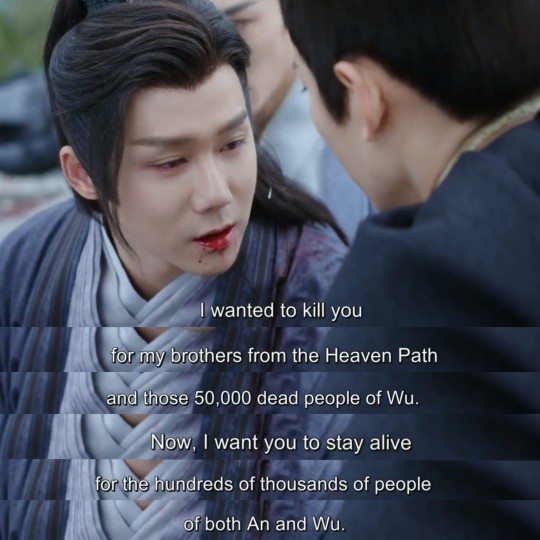
Another thing I really liked was the emphasis they gave to Yang Ying's relationships, her attempts at finding love and the way they validate her feelings about it- she had just realised how much of a scumbag Zheng Qingyun is, eventually moved on to slowly having feelings for Yuan Lu, but entered a political marriage with Li Tongguang in the end- and she's still so young.
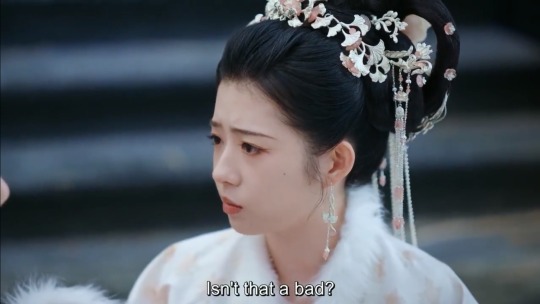
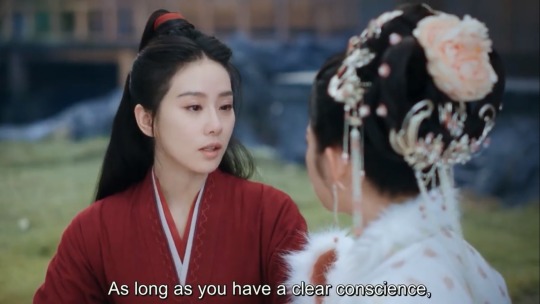
"As long as you gave a clear conscience, even if a woman has only loved one person, or loved multiple people in her life, she still deserves respect"
(Lastly, there's Yu Shisan who's like. the embodiment of love in this drama- not just because of his flirtatious nature, but its in those small scenes that really shows how deeply he loves.
There's the start of the show, where he volunteers to take the punishment in Yang Ying's steed (ep 6),

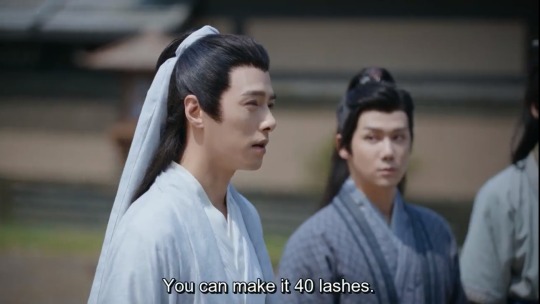
then there's the episode where NYZ clarifies to Ruyi that it's because YSS is too worried that he is acting indifferent (ep 8). Then there's all the scenes where he periodically checks up on NYZ (ep 10, 31, etc), his concern for Ruyi putting all her eggs in one basket (ep 20ish), the talk between him and JMN where she admits that YSS treated her well (ep 30).
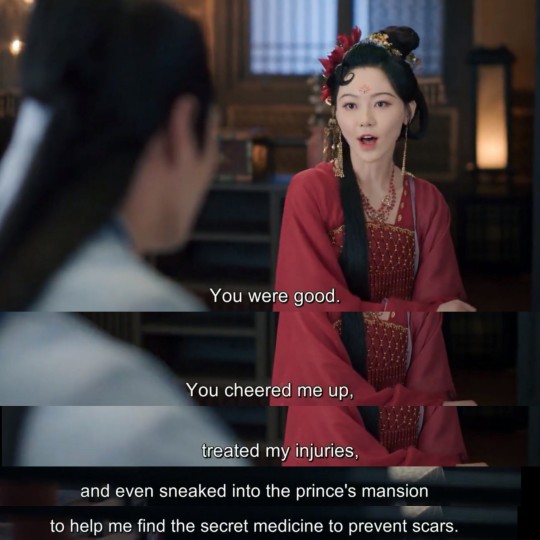
And then there's his death. There's this wonderful post that has been haunting me for months. How do you save Yu Shisan, when half the people he loves is dead? How do you save him when, even if he survives, would not allow himself the love that he gives away so freely? (see: first half of episode 39)).
Just know that this show has me feral over it's brilliant writing. They got me from the very beginning when they portrayed NYZ's emotional intelligence and acceptance of RRY and his consideration for her. (and when they introduced Yuan Lu. I went: that's my blorbo from this show).
#i am so completely normal about this show#I am so sorry to be yapping about this show again#it just. suddenly hit me in class. about this show and the theme of love#a journey to love#Ning Yuanzhou#Yu Shisan#Ren Ruyi#Yuan Lu#did i write three paragraphs for yss? no you didn't see anything#i wanted to put more screenshots in this but alas the media limit
21 notes
·
View notes
Text
Accounts of Qiuci and Yutian (LS54)
The state of 龜茲, Middle Chinese *Khjuw-dzi, Standard Chinese Qiūcí, now Kucha, was located on the northern side of the Tarim basin.
The state of 于闐, Middle Chinese *Hju-den, Standard Chinese Yútián, now Hotan or Khotan, was located on the south-western of the Tarim basin.
Beside their central locations on the Silk Road, both kindoms were centers for Buddhist learning and served a key role in that religion's spread into China.
Pictures ambassadors taken from Song copy of the Portraits of Periodical Offering of Liang (Beiti and Qiuci), Tang The Gathering of Kings (c. 650 AD) (Beiti, Qiuci, and Yutian), and the Southern Tang Entrance of the Foreign Visitors of Emperor Yuan of Liang (mid 10th century)(Beiti, Qiuci, and Yutian)
(Scans taken from Wikipedia)
The various Rong of the North-west, during the Han period, Zhang Qian first went out on the tracks of the Western Region, Gan Ying then approached the Western Sea. Sometimes they dispatched attendant sons, sometimes they offered displays of tribute. At that time, though they were destitute in troops, they were extremely martial, and they were only just overcome and vanquished. Compared to previous eras, their plundering was far reaching. In the time of Wei, three regions were [like] legs of a tripod, with daily matters of opposing halberds, When the Jin clan pacified Wu and afterwards, and they for a little while obtained a little tranquillity and rest, they merely set up the office of Wuji. The various states likewise were not yet retainers and followers. Continuing on with the Central States' destruction and disorder, Hu people rose up one after the other. The Western Region was separated and blocked from Jiangdong and difficult translations were not exchanged. Lü Guang's expedition to Quici was more like barbarians invading barbarians, and no idea of the Central States. Since that point, the various states have divided and united, been victorious or defeated, strong or weak, and it is difficult to obtain a thorough record. Bright gems and blue feathers were only familiar in the rear palaces, Pushao and Longwen [horses] rarely entered the outer offices. At Liang accepting the mandate, they who served the correct calendar and were in the court's palaces and courtyard, were the states of Chouchi, Dangchang, Gaochang, Dengzhi, Henan, Quici, Yutian and Hua. Now [I] patch together their manners and customs, and as an Account of the North-western Rong as follows:
…
The state of Hua is a branch of Jushi. Han's 1st Year of Yongjian [126 AD], Bahua accompanied Ban Yong to strike the northern villains and had merit. Yong elevated Bahua to Marquis Friendly to Han of the Rear Section. From Wei, Jin, and onwards, they did not communicate with the Central States.
…
The state of Baiti, the King's family name is Zhi and his personal name Shijiyi. His ancestors perhaps were Hu from a branch of the Xiongnu. When Han's Guan Ying fought with Xiongnu, he beheaded one Baiti cavalryman. Now it is east of the state of Hua. The distance to Hua is six day's travel, furthest west is Persia [Bosi波斯]. The land produces millet, wheat, and melons. The food is roughly similar to Hua.


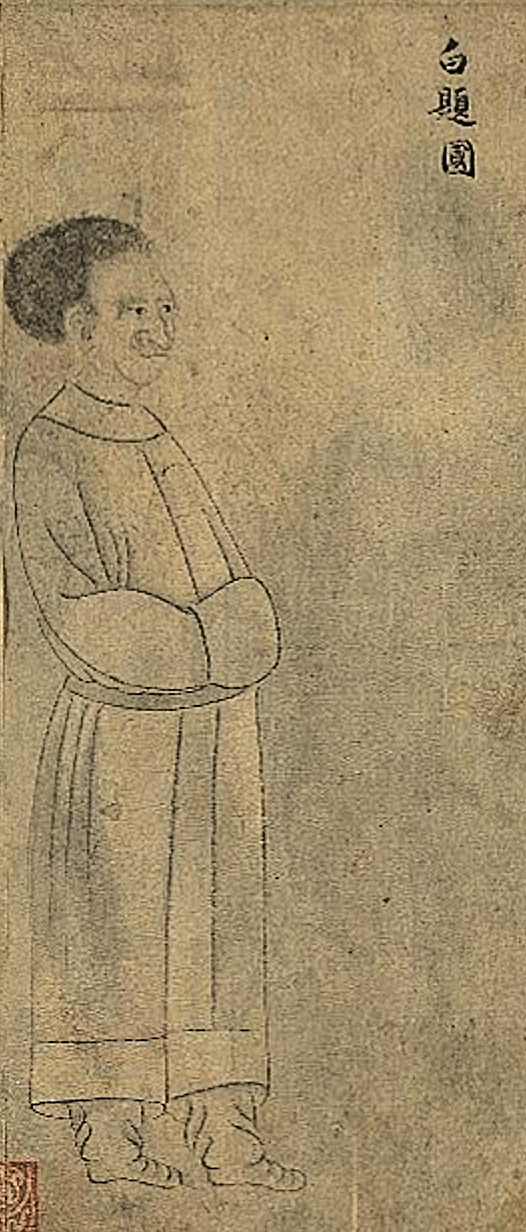
…
Qiuci is an old state of the Western Regions. In the time of Guangwu of Later Han [r- 25 – 57 AD], their King was named Hong. He was killed by the King of Shache, Xian, who wiped out his family. Xian sent his son Zeluo to be King of Qiuci. The people of the state also killed Zeluo. The Xiongnu installed a notable man from Quici, Shendu, as King, and because of this they belonged to the Xiongnu. However Qiuci in the Han period was regularly a great state, the capital was called Yan City.
When Emperor Wen of Wei begun his reign [r. 220 - 226], they dispatched envoys with tribute to present. Middle of Jin's Taikang era [280 -289], they dispatched sons to enter [court] in attendance.
7th Year of Taiyuan [382 AD], the ruler of Qin, Fu Jian, dispatched general Lü Guang to invade the Western Region. He arrived at Qiuci. The King of Qiuci, Bochun, loaded up the treasure, set out and ran. Guang entered his city. The city has three layers. The outer walls are comparable to the walls of Chang'an. The rooms and buildings are huge and magnificent. For decoration they use gemstones, gold, and jade. Guang installed Bochun's younger brother Zhen as King, and then returned home. Since then they have been cut off from the Central States and not communicated.


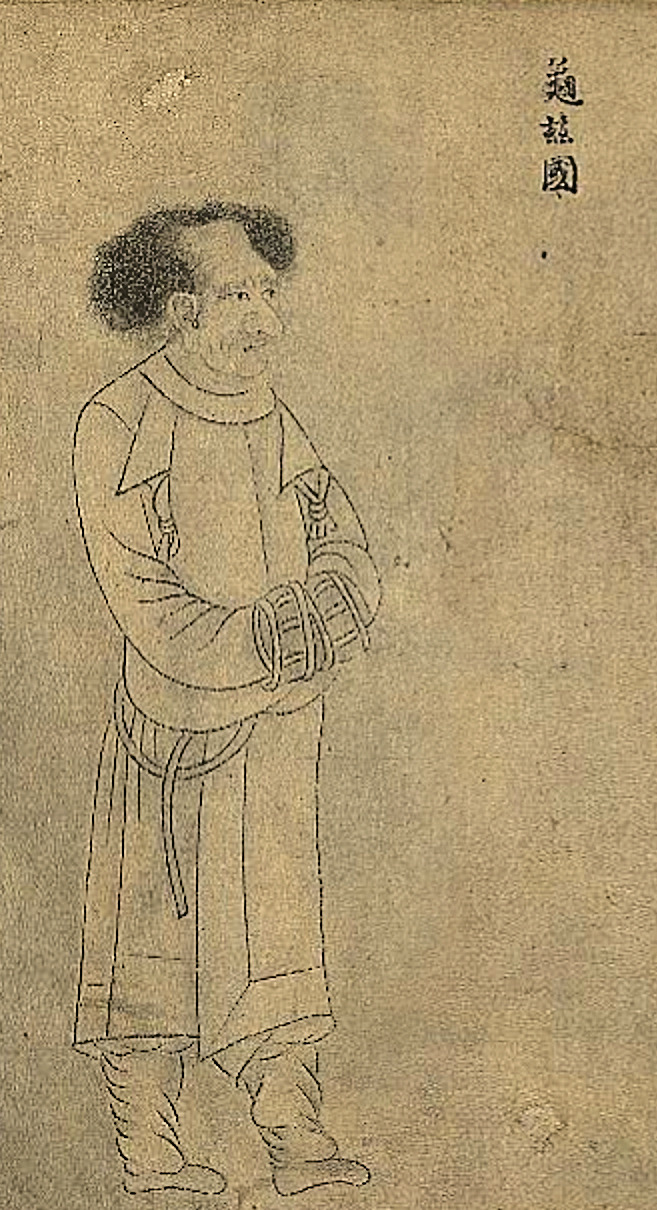
…
The state of Yutian belongs to the Western Regions. At the end of Later Han's Jianwu era Jianwu [25 – 56 AD], King Yu was routed by the King of Shache, Xian. He moved him to be King of Ligui, and used his younger brother Junde as King of Yutian. He was violent and cruel, and the hundred families were troubled by him. Middle of Yongping [58 – 75 AD], a man of their kind, Dumo, killed Junde. A nobleman, Xiumoba also killed Dumo, and installed himself as King. Ba died, and his older brother's son Guangde was installed. He afterwards struck and captured the King of Shache, Xian, to return home, and killed him, and thereupon he made a strong state. The various small states of the north-west all yield and follow.
In their land there are many rivers and rainstorms, sand and rock. The air is warm and suitable for rice, wheat, and rose apple [putao 蒲桃]. There is a river which produces jade, it is called the Yu He [“Jade river”, 玉河]. People of the state are good at casting copper vessels. Their government seat is called Xishan City, it has roofed houses, markets, and wells. The fruit and vegetables are comparable to the Central States. They are particularly reverent of Buddhism. The building where the King dwells has cinnabar drawings applied to it. The King's headgear is a golden head-wrap, similar to the present Hu-style hat. He sits side by side with his wife when welcoming guests. Within their state, the married women all braid their hair and wear fur trousers. Their people are respectful. When they see each other, they kneel, and when they kneel, one knee touches the ground. For writing they use wood for brush and slips, and jade for stamps. When the people of the state obtain a letter, they wear it on their head, and then afterwards open up the slips. In the time of Emperor Wen of Wei, King Shanxi presented famous horses.

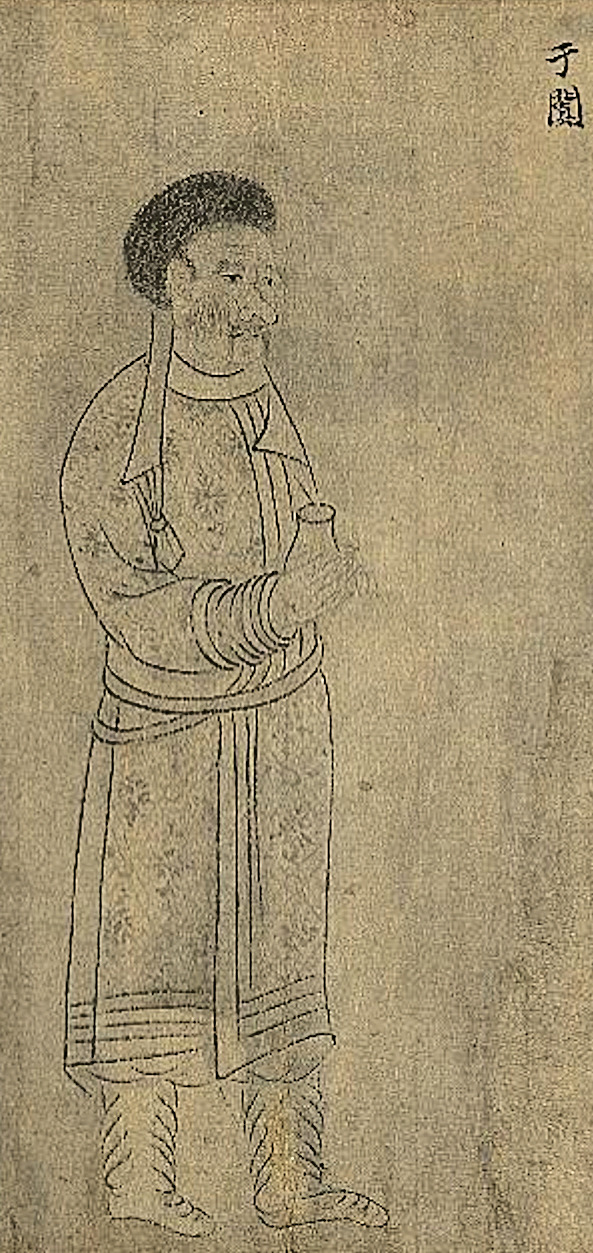
12 notes
·
View notes
Note
a o e i i er ai ei ao ou an en ang eng ong i ia iao ie iu ian in iang ing iong u ua uo uai ui uan un uang ueng ü üe üan ün a o e er ai ao ou an en ang eng yi ya yao ye you yan yin yang ying yong wu wa wo wai wei wan wen wang weng yu yue yuan yun b ba bo bai bei bao ban ben bang beng bi biao bie bian bin bing bu p pa po pai pei pao pou pan pen pang peng pi piao pie pian pin ping pu m ma mo me mai mei mao mou man men mang meng mi miao mie miu mian min ming mu f fa fo fei fou fan fen fang feng fu d da de dai dei dao dou dan den dang deng dong di diao die diu dian ding du duo dui duan dun t ta te tai tei tao tou tan tang teng tong ti tiao tie tian ting tu tuo tui tuan tun n na ne nai nei nao nou nan nen nang neng nong ni niao nie niu nian nin niang ning nu nuo nuan nü nüe l la le lai lei lao lou lan lang leng long li lia liao lie liu lian lin liang ling lu luo luan lun lü lüe g ga ge gai gei gao gou gan gen gang geng gong gu gua guo guai gui guan gun guang k ka ke kai kei kao kou kan ken kang keng kong ku kua kuo kuai kui kuan kun kuang h ha he hai hei hao hou han hen hang heng hong hu hua huo huai hui huan hun huang z za ze zi zai zei zao zou zan zen zang zeng zong zu zuo zui zuan zun c ca ce ci cai cao cou can cen cang ceng cong cu cuo cui cuan cun s sa se si sai sao sou san sen sang seng song su suo sui suan sun zh zha zhe zhi zhai zhei zhao zhou zhan zhen zhang zheng zhong zhu zhua zhuo zhuai zhui zhuan zhun zhuang ch cha che chi chai chao chou chan chen chang cheng chong chu chua chuo chuai chui chuan chun chuang sh sha she shi shai shei shao shou shan shen shang sheng shu shua shuo shuai shui shuan shun shuang r re ri rao rou ran ren rang reng rong ru rua ruo rui ruan run j ji jia jiao jie jiu jian jin jiang jing jiong ju jue juan jun q qi qia qiao qie qiu qian qin qiang qing qiong qu que quan qun x xi xia xiao xie xiu xian xin xiang xing xiong xu xue xuan xun
NAKU 🫵
39 notes
·
View notes
Text
黄霄云 Huang Xiao Yun – 要不然我们就这样一万年歌词拼音 Yao Bu Ran Wo Men Jiu Zhe Yang Yi Wan Nian Lyrics Pinyin
youtube
我想借天边 那轮将落未落的悬月
wo xiang jie tian bian na lun jiang luo wei luo de xuan yue
悬一只萤蝶 悬将至风雪
xuan yi zhi ying die xuan jiang zhi feng xue
悬不合时宜里 忘我的一切
xuan bu he shi yi li wang wo de yi qie
悬一场梦 滴泪交换你 心如焰
xuan yi chang meng di lei jiao huan ni xin ru yan
要不然我们 就这样一万年
yao bu ran wo men jiu zhe yang yi wan nian
把时间泊在 说再见之前
ba shi jian bo zai shuo zai jian zhi qian
用你 浅笑的甜 我的泪之盐
yong ni qian xiao de tian wo de lei zhi yan
做你的还 和我的亏欠
zuo ni de hai he wo de kui qian
你可知明哲的灵魂 轻徊过沦先
ni ke zhi ming zhe de ling hun qing huai guo lun xian
一颗心被爱恨撕裂 也不肯飞远
yi ke xin bei ai hen si lie ye bu ken fei yuan
可知你铭心的一眼 如同入骨的一剑
ke zhi ni ming xin de yi yan ru tong ru gu de yi jian
如缘似劫 不得 化解
ru yuan si jie bu de hua jie
要不然我们 就这样一万年
yao bu ran wo men jiu zhe yang yi wan nian
把时间泊在 说再见之前
ba shi jian bo zai shuo zai jian zhi qian
用你 浅笑的甜 我的泪之盐
yong ni qian xiao de tian wo de lei zhi yan
做你的还 和我的亏欠
zuo ni de hai he wo de kui qian
你可知明哲的灵魂 轻徊过沦陷
ni ke zhi ming zhe de ling hun qing huai guo lun xian
一颗心被爱恨撕裂 也不肯飞远
yi ke xin bei ai hen si lie ye bu ken fei yuan
可知你铭心的一眼 如同入骨的一剑
ke zhi ni ming xin de yi yan ru tong ru gu de yi jian
如缘似劫 无歇
ru yuan si jie wu xie
荒原的沙滚过思念 我翻涌的年
huang yuan de sha gun guo si nian wo fan yong de nian
梦一场厮守的幻觉 心岁何以万千
meng yi chang si shou de huan jiao xin sui he yi wan qian
只因那清冷的暗夜 永���繁花落尽前
zhi yin na qing leng de an ye yong ji fan hua luo jin qian
曾得少年 以吻相劝
ceng de shao nian yi wen xiang quan
将爱泊在 灰烬之前
jiang ai bo zai hui jin zhi qian
2 notes
·
View notes
Note
Ji ji fu ji ji
a o e i i er ai ei ao ou an en ang eng ong i ia iao ie iu ian in iang ing iong u ua uo uai ui uan un uang ueng ü üe üan ün a o e er ai ao ou an en ang eng yi ya yao ye you yan yin yang ying yong wu wa wo wai wei wan wen wang weng yu yue yuan yun b ba bo bai bei bao ban ben bang beng bi biao bie bian bin bing bu p pa po pai pei pao pou pan pen pang peng pi piao pie pian pin ping pu m ma mo me mai mei mao mou man men mang meng mi miao mie miu mian min ming mu f fa fo fei fou fan fen fang feng fu d da de dai dei dao dou dan den dang deng dong di diao die diu dian ding du duo dui duan dun t ta te tai tei tao tou tan tang teng tong ti tiao tie tian ting tu tuo tui tuan tun n na ne nai nei nao nou nan nen nang neng nong ni niao nie niu nian nin niang ning nu nuo nuan nü nüe l la le lai lei lao lou lan lang leng long li lia liao lie liu lian lin liang ling lu luo luan lun lü lüe g ga ge gai gei gao gou gan gen gang geng gong gu gua guo guai gui guan gun guang k ka ke kai kei kao kou kan ken kang keng kong ku kua kuo kuai kui kuan kun kuang h ha he hai hei hao hou han hen hang heng hong hu hua huo huai hui huan hun huang z za ze zi zai zei zao zou zan zen zang zeng zong zu zuo zui zuan zun c ca ce ci cai cao cou can cen cang ceng cong cu cuo cui cuan cun s sa se si sai sao sou san sen sang seng song su suo sui suan sun zh zha zhe zhi zhai zhei zhao zhou zhan zhen zhang zheng zhong zhu zhua zhuo zhuai zhui zhuan zhun zhuang ch cha che chi chai chao chou chan chen chang cheng chong chu chua chuo chuai chui chuan chun chuang sh sha she shi shai shei shao shou shan shen shang sheng shu shua shuo shuai shui shuan shun shuang r re ri rao rou ran ren rang reng rong ru rua ruo rui ruan run j ji jia jiao jie jiu jian jin jiang jing jiong ju jue juan jun q qi qia qiao qie qiu qian qin qiang qing qiong qu que quan qun x xi xia xiao xie xiu xian xin xiang xing xiong xu xue xuan xun
6 notes
·
View notes
Text
wip wednesday!
it's been a while since i've done one of these, but i have been churning out ideas for A Journey to Love fic nonstop since before the show ended (as @myhamartiaishubris can attest)
this snippet was written around like, eps 25-28-ish. (basically before everyone started dying). it was going to be the start to a Yu Shisan-centric time-travel fixit, but then the show finished and it made this whole thing irrelevant.
Basically, AU where the second prince isn't a dipshit, An Di isn't as terrible, and there's no real issues with getting our of the Wu capital.
CW for major character death under the cut
Yu Shisan does not die in a dramatic blaze of glory, nor does he die to protect a beautiful and virtuous young lady.
He dies halfway home from the An kingdom when a stray arrow from a bandit hits him in the lung. Ning Yuanzhou makes a truly animalistic sound, and Ren Ruyi and Sun Lang both viciously fight off any bandits who come near him and Lao Qian.
Lao Qian looks stoic as ever, hands perfectly steady as he tries to bandage the wound. Shisan already knows it's no use, but Lao Qian's eyes flash beautifully when he tries to say that.
"Ah, Lao Qian," he tries, "You shouldn't worry; you'll get wrinkles, and then where would your good looks go."
"I'm not one of your ladies, brought to my knees with pretty words and fluttered eyelashes," Lao Qian snaps, stripping Shisan of his armor to better reach his wound.
Oh, Shisan thinks. "I know that," he says aloud. He intends to keep talking, but instead he coughs, sending blood splattering over Qian Zhao’s robes.
Qian Zhao’s lips purse, but he doesn’t pause in his ministrations. Yuan Lu has come to kneel by his side, hands shaking as he reaches for Shisan’s hand.
“You can’t die,” Yuan Lu says, voice choked with tears. “Yang Ying will be so upset if you die.”
“I didn’t mean to,” Shisan says, and coughs again.
“Stop talking,” Lao Qian snaps. “You’re aggravating it.”
Shisan chokes on a laugh. “Ah, Lao Qian,” he says, ignoring the way his whole body lights up in a flare of pain. “I must maintain my image.”
“You can’t do that if you’re dead,” Ning Yuanzhou says. Shisan didn’t realize he’d knelt down next to him. That must mean the bandits are gone.
He says as much, or at least he tries to, breaking off into another blood-soaked cough.
He thinks everyone else has gathered around him, like they did that time Ning Yuanzhou was dying after the fight to protect Beauty’s dumb disciple. Someone moves his head, and then he’s looking up into Beauty’s worried eyes.
He can die happily if he’s looking at a beautiful woman, Shisan decides, but then she lets go of his face, letting it loll back to look at Qian Zhao. There are more hands on his chest, and then a tear slips down Qian Zhao’s face.
“That’s not right,” Shisan tries to say, attempting to reach up to wipe away Lao Qian’s tears, but he can’t do either. It’s getting harder to keep his eyes open.
He hears a desperate conversation happening above him, multiple voices overlapping, but he can’t focus on it. Instead he keeps his eyes on Lao Qian’s face and the tears tracing down his cheeks until he can’t force them open any longer.
Yu Shisan dies surrounded by his brothers, barely half a li from his own country.
so i wrote this before everyone died and had to scrap it, but rest assured that the au is still being written (alongside @myhamartiaishubris who is writing all the parts i can't, namely the flirting)
16 notes
·
View notes
Text
Cultivation Webcomics Ive Read
This is my strange addiction 🤗🤭
-Against the Gods
-Anecdotes about Spirits and Immortals (finished)
-Apotheosis / Principles of Heaven / Forged Success
-Banished Disciple's Counterattack
-Battle Frenzy (note: check if this is not cultivation)
-Cultivation Chat Group
-Duopo Cangqiong
-Engergy Hunters
-First Class Servant
-God of Martial Arts
-I Have a Dragon In My Body
-I Have Nine Female Disciples
-Immortal Swordsman in The Reverse World / Sword King In A Women's World
-I'm The Great Immortal
-Indestructible Primordial Spirit
-Lian Fei Wei Bao
-Martial Peak
-Master of Legendary Realms / The Wonderland of Ten Thousand
-Magic Emperor / The Servant Is the Demon King?!
-Matchless Emperor
-Metropolitan City's Ying Yang Miracle Doctor / The Urban Miracle Doctor
-Nine Days of Martial Arts / Beyond the Empyrean
-One Sword Reigns Supreme
-Panlong
-Peerless Alchemist
-Pupillary Master / Supreme Ocular Master: The Peerless Heiress
-Read to Level Up / I Stack Experience Through Writing Books
-Rebirth: City Deity
-Rebirth of The Urban Immortal Cultivator
-Reborn 80,000 Years
-Soul Land / Douluo Dalu
-Star Martial God Technique
-Tales of Demons and Gods
-The Ghostly Doctor
-The Great Ruler
-The Mythical Realm
-The Peerless Concubine
-Urban Fairy King / Immortal King of the City
-Versatile Mage / Quanzhi Fashi
-Wu Dong Qian Kun / Martial Universe
-Yuan Zun / Dragon Prince Yuan
1 note
·
View note
Text
A Third Century Chinese Account of the Roman Empire
New Post has been published on https://china-underground.com/2022/05/12/a-third-century-chinese-account-of-the-roman-empire/
A Third Century Chinese Account of the Roman Empire
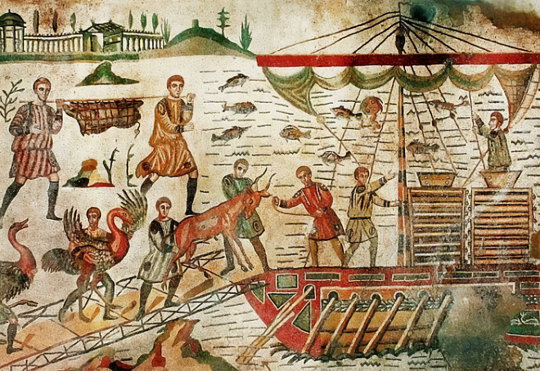
Roman life is described in translations of The Weilue, a 3rd-century Chinese historical text.
Mutual knowledge of the Chinese and Roman empires was very limited. Only a few attempts at direct communication are witnessed in the documents. In order to preserve control over the lucrative silk trade, intermediate empires such as the Parthians and the Kushans prevented direct contact between the two empires.
The historian Florus recounted the arrival of various envoys to the court of the first Roman Emperor Augustus (r. 27 BC – 14 AD), including the “Seres” (possibly the Chinese):
“Even the rest of the nations of the world which were not subject to the imperial sway were sensible of its grandeur, and looked with reverence to the Roman people, the great conqueror of nations. Thus even Scythians and Sarmatians sent envoys to seek the friendship of Rome. Nay, the Seres came likewise, and the Indians who dwelt beneath the vertical sun, bringing presents of precious stones and pearls and elephants, but thinking all of less moment than the vastness of the journey which they had undertaken, and which they said had occupied four years. In truth it needed but to look at their complexion to see that they were people of another world than ours.” (Florus, as quoted in Yule (1915))
The Chinese commander Ban Chao attempted to send his emissary Gan Ying to Rome in AD 97, but the Parthians forbade him to cross the Persian Gulf. Ancient Chinese historians told of several alleged Roman embassies in China. The first known came in 166 AD, presumably from the Roman emperor Antoninus Pius or his adopted son Marcus Aurelius. Others are said to have arrived between AD 226 and 284, with a notable gap to the first Byzantine embassy in AD 643.
Weilue: The People of the West
The Weilüe (魏 略), or “Short History of Wei”, is a Chinese historical text written by Yu Huan between 239 and 265. Yu Huan was an officer in the state of Cao Wei (220-265) during the period of the Three Kingdoms (220-280). Although he was not a historian, he was highly regarded by Chinese academics. The original content of the book has been lost, but the chapters on the Xirong have been cited by Pei Songzhi, as an annotation to volume 30 of the Chronicles of the Three Kingdoms (��國 志), the official historical text of the Three Kingdoms period, which collects the chronicles of the rival states, Wei Kingdom, Shu Kingdom, and the Wu Kingdom of the Three Kingdoms in a single text, and served as a model for historical novels such as The Romance of the Three Kingdoms of the 14th Century, first published in 429. The Weilüe contains material new, unique, and generally reliable, mostly from the late 2nd and early 3rd centuries. Most of the new information contained in the volume appears to come from the Eastern Han Dynasty before China was largely cut off from the West by civil wars and unrest along its borders during the late 2nd century.
Yu Huan, who never left China, does not mention in his text the sources from which he received the information. However, land communications with the West apparently continued uninterrupted even after the fall of the Eastern Han dynasty.
Yu Huan collected a great deal of information on Western countries including Parthia, India, and the Roman Empire, and on the various routes to reach these exotic destinations.
Some information was already known before Yu Huan, and can also be found in some sections of the Records of the Grand Historian (史記, Shiji by Sima Qian), the History of the Former Han (Hanshu, 汉书, initiated by Ban Biao, continued from son Ban Gu and terminated by Biao’s youngest daughter Ban Zhao), and the Book of Later Han (Hou Hanshu, 後 漢書, compiled by Fan Ye).
The book describes the routes to the Roman Empire. It is possible that some, if not all of the information contained come from reports by foreign sailors and travelers. One such document that may have been available to Yu Huan is detailed in the Book of Liang by a Roman merchant who arrived in Jiaozhi near modern-day Hanoi in 226 and was sent to the court of Eastern Wu Emperor Sun Quan, who asked him for a report on his native country and its people.
Yu Huan included a brief description of “Zesan”, a vassal state of the Roman Empire, identified by some as Trebizond in modern-day Turkey and by historian John E. Hill with Azania, corresponding to the southeastern coast of Africa.
The complete translation with the translation notes by John E. Hill (September 2004) of the volume in English can be found by following this link.
Below, are the most significant passages describing a peripheral part of the Roman Empire through the eyes of a third-century Chinese intellectual.
Section 11 – Da Qin (Roman territory/Rome)
The kingdom of Da Qin (Rome) is also called Lijian. It is west of Anxi (Parthia) and Tiaozhi (Characene and Susiana), and west of the Great Sea.
From the city of Angu (Gerrha), on the frontier of Anxi (Parthia), you take a boat and cut directly across to Haixi (‘West of the Sea’ = Egypt). With favourable winds it takes two months; if the winds are slow, perhaps a year; if there is no wind, perhaps three years.
The country (that you reach) is west of the sea (haixi), which is why it is called Haixi (literally: ‘West of the Sea’ = Egypt). There is a river (the Nile) flowing out of the west of this country, and then there is another great sea (the Mediterranean). The city of (Wu) Chisan (Alexandria)7 is in Haixi (Egypt).
From below this country you go north to reach the city of Wudan (Tanis?). You (then) head southwest and cross a river (the Sebannitus branch of the Nile?) by boat, which takes a day. You head southwest again, and again cross a river (the Canopis branch of the Nile?) by boat, which takes another day. There are, in all, three major cities [that you come to].
Now, if you leave the city of Angu (Gerrha) by the overland route, you go north to Haibei (‘North of the Sea’ – the lands between Babylonia and Jordan), then west to Haixi (Egypt), then turn south to go through the city of Wuchisan (Alexandria). After crossing a river, which takes a day by boat, you circle around the coast (to the region of Apollonia, the port of Cyrene). (From there, i.e. the region of Apollonia) six days is generally enough to cross the (second) great sea (the Mediterranean) to reach that country (Da Qin = Rome).
This country (the Roman Empire) has more than four hundred smaller cities and towns. It extends several thousand li in all directions. The king has his capital (that is, the city of Rome) close to the mouth of a river (the Tiber). The outer walls of the city are made of stone.
This region has pine trees, cypress, sophora, catalpa, bamboo, reeds, poplars, willows, parasol trees, and all sorts of plants. The people cultivate the five grains [traditionally: rice, glutinous and non-glutinous millet, wheat and beans], and they raise horses, mules, donkeys, camels and silkworms. (They have) a tradition of amazing conjuring. They can produce fire from their mouths, bind and then free themselves, and juggle twelve balls with extraordinary skill.
The ruler of this country is not permanent. When disasters result from unusual phenomena, they unceremoniously replace him, installing a virtuous man as king, and release the old king, who does not dare show resentment.
The common people are tall and virtuous like the Chinese, but wear hu (‘Western’) clothes. They say they originally came from China, but left it.
They have always wanted to communicate with China but, Anxi (Parthia), jealous of their profits, would not allow them to pass (through to China).
The common people can write in hu (‘Western’) script. They have multi-storeyed public buildings and private; (they fly) flags, beat drums, (and travel in) small carriages with white roofs, and have a postal service with relay sheds and postal stations, like in the Middle Kingdom (China).
From Anxi (Parthia) you go around Haibei (‘North of the Sea’ – the lands between Babylonia and Jordan) to reach this country.
The people (of these countries) are connected to each other. Every 10 li (4.2 km) there is a ting (relay shed or changing place), and every 30 li (12.5 km) there is a zhi (postal station). There are no bandits or thieves, but there are fierce tigers and lions that kill those travelling on the route. If you are not in a group, you cannot get through.
This country (Rome) has installed dozens of minor kings. The king’s administrative capital (Rome) is more than 100 li (42 km) around. There is an official Department of Archives.
The king has five palaces at 10 li (4.2 km) intervals. He goes out at daybreak to one of the palaces and deals with matters until sunset and then spends the night there. The next day he goes to another palace and, in five days makes a complete tour. They have appointed thirty-six leaders who discuss events frequently. If one leader does not show up, there is no discussion. When the king goes out for a walk, he always orders a man to follow him holding a leather bag. Anyone who has something to say throws his or her petition into the bag. When he returns to the palace, he examines them and determines which are reasonable.
They use glass to make the pillars and table utensils in the palaces. They manufacture bows and arrows.
They divide the various branch principalities of their territory into small countries such as that of the king of Zesan (Azania?), the king of Lüfen (Leucos Limen), the king of Qielan (Wadi Sirhan), the king of Xiandu (Leukê Komê), the king of Sifu (Petra), (and that of) the king of Yuluo (Karak). There are so many other small kingdoms it is impossible to give details on each one.
Section 12 – Products of Da Qin (Roman territory)
This country produces fine linen. They make gold and silver coins. One gold coin is equal to ten silver coins.
They have fine brocaded cloth that is said to be made from the down of ‘water-sheep’. It is called Haixi (‘Egyptian’) cloth. This country produces the six domestic animals, which are all said to come from the water.
It is said that they not only use sheep’s wool, but also bark from trees, or the silk from wild cocoons, to make brocade, mats, pile rugs, woven cloth and curtains, all of them of good quality, and with brighter colours than those made in the countries of Haidong (“East of the Sea”).
Furthermore, they regularly make a profit by obtaining Chinese silk, unravelling it, and making fine hu (‘Western’) silk damasks. That is why this country trades with Anxi (Parthia) across the middle of the sea. The seawater is bitter and unable to be drunk, which is why it is rare for those who try to make contact to reach China.
The mountains (of this country) produce nine-coloured jewels (fluorite) of inferior quality. They change colour on different occasions from blue-green to red, yellow, white, black, green, purple, fiery red, and dark blue. Nowadays nine-coloured stones of the same type are found in the Yiwu Shan (a mountain range east of Hami).
In the third Yangjia year (CE 134), the king of Shule (Kashgar), Chen Pan [who had been made a hostage at the court of the Kushan emperor, for some period between 114 and 120, and was later placed on the throne of Kashgar by the Kushans], offered a blue (or green) gem and a golden girdle from Haixi (Egypt).
Moreover, the Xiyu Jiutu (‘Ancient Sketch of the Western Regions’) now says that both Jibin (Kapisha-Gandhāra) and Tiaozhi (Characene and Susiana) produce precious stones approaching the quality of jade.
Product List
Note: The translator has added the numbering in brackets for the convenience of the reader in checking the notes on the various items. For information on any of the items mentioned in the list, please click on the blue superscript No. 12 after “Product List” above, and then scroll down the page of notes until you come to the number you are looking for. For instance, if you want to check the notes on tin, scroll down until you reach note number 12.12 (6).
Da Qin (the Roman Empire) has plenty of:
(1) gold
(2) silver
(3) copper
(4) iron
(5) lead
(6) tin
(7) ‘divine tortoises’ – tortoises used for divination
(8) white horses with red manes
(9) fighting cocks
(10) rhinoceroses
(11) sea turtle shell
(12) black bears
(13) ‘red hornless (or immature) dragons’ (which produced the famous “dragons’ blood” resin)
(14) ‘poison-avoiding rats’ = mongooses
(15) large cowries
(16) mother-of-pearl
(17) carnelian
(18) ‘southern gold’
(19) kingfisher feathers
(20) ivory
(21) coloured veined jade
(22) ‘bright moon’ pearls
(23) luminescent ‘pearls’ or pearl-like jewels (probably large diamonds)
(24) genuine white pearls
(25) yellow amber
(26) (red) coral
(27) ten varieties of glass: red, white, black, green, yellow, blue-green, dark blue, light blue, fiery red, purple
(28) a magnificent jade
(29) white carnelian?
(30) rock crystal or transparent glass
(31) various semi-precious gems
(32) realgar
(33) orpiment
(34) nephrite
(35) multicoloured jade or gemstone
(36) ten sorts of wool rugs: yellow, white, black, green, purple, fiery red, deep red, dark blue, golden yellow, light blue and back to yellow
(37) finely patterned multicoloured wool carpets
(38) nine colours of multicoloured lower quality wool carpets (kilims rather than knotted carpets?)
(39) gold threaded embroidery
(40) polychrome (warp twill) fine silk or chiffon
(41) woven gold cloth
(42) purple chi cloth
(43) falu cloth
(44) purple chiqu cloth
(45) asbestos cloth
(46) fine silk gauze cloth
(47) shot silk, ‘clinging cloth’ or ‘cloth with swirling patterns’?
(48) dudai cloth
(49) cotton-wool cloth?
(50) multicoloured tao cloth
(51) crimson curtains woven with gold
(52) multicoloured ‘spiral curtains’?
(53) yiwei
(54) myrrh
(55) storax
(56) diti
(57) rosemary
(58) probably dhūṇa – an incense made from the resin of the Indian Sal tree.
(59) bai fuzi – lit. ‘white aconite’ – but it is not clear what plant this refers to here. See notes.
(60) frankincense
(61) turmeric, saffron or tulips
(62) rue oil
(63) Oriental lovage – Lysimachia foenum-graecum Hance
Altogether (they have) twelve types of aromatic plants.
Section 13 – The Sea Route to Da Qin (Roman territory)
As well as the overland route from Da Qin (Roman territory) through Haibei (‘North of the Sea’ – the lands between Egypt and Parthia), one can also follow the sea south along the seven commanderies of Jiaozhi (stretching down the north Vietnamese coast), which are in contact with foreign countries. Nearby (or ‘North’) is a waterway (the Red River) which leads to Yongchang in Yizhou (a commandery in present-day southern Yunnan). That’s why rare items come from Yongchang.
In early times only the maritime routes (to Da Qin) were discussed because they didn’t know there were overland routes.
Section 14 – Roman Dependencies
Now, (the Roman Empire) can be summed up as follows: the number of people and families cannot be given in detail. It is the biggest country west of the Bai Congling (‘White Pamir Mountains’). They have installed numerous minor kings so only the bigger dependencies are noted here:
Section 15 – The Kingdom of Zesan (Azania)
The king of Zesan (Azania) is subject to Da Qin (Rome). His seat of government is in the middle of the sea. To the north you reach Lüfen (Leukê Komê). It can take half a year to cross the water, but with fast winds it takes a month.
(Zesan) is in close communication with Angu city (Gerrha) in Anxi (Parthia). You can (also) travel (from Zesan) southwest to the capital of Da Qin (Rome), but the number of li is not known.
Section 16 – The Kingdom of Lüfen = Leukê Komê or modern Al Wajh
The king of Lüfen (Leukê Komê) is subject to Da Qin (Rome). It is 2,000 li (832 km) from his residence to (the nearest) major city (= Daphnae) of Da Qin (the Roman Empire).
From the city of Lüfen (Leukê Komê) going west to Da Qin (alongside the Butic Canal), you cross over the sea by an ‘elevated bridge’ 230 li (96 km) long;3 then you take the sea route southwest, travelling around the sea (coast), and then head west (to reach Da Qin).
Section 17 – The Kingdom of Qielan (Wadi Sirhan)
The king of Qielan (Wadi Sirhan) is subject to Da Qin (Rome). From the kingdom of Sitao (Istakhr, Stakhr) you go south, cross a river (the Rūd-i Kor), then head west 3,000 li (1,247 km) to go to Qielan (Wadi Sirhan). The route leaves south of the river (the Rūd-i Kor), only then do you head west.
From Qielan (Wadi Sirhan) you again travel west 600 li (250 km) to the kingdom of Sifu (Petra). The Southern Route joins (this east-west route) at Sifu (Petra). Also, (a route) goes southwest to the kingdom of Xiandu (‘Aynūnah).
Due south from Qielan (Wadi Sirhan) and Sifu (Petra) is Jishi (‘Rock Piles’). To the south of Jishi (‘Rock Piles’) there is a big sea (the Red Sea) which produces coral and pearls.
North of Qielan (Wadi Sirhan), Sifu (Petra), Sibin (Susa) and Aman (Ariana) there is a mountain range (the Taurus mountains)11 running east to west.
East of both Da Qin (Roman territories) and Haixi (= Egypt) there is a mountain range (the Jibāl ash Sharāh Range or Mount Seir) running north to south.
Section 18 – The Kingdom of Xiandu (‘Aynūnah = Leukos Limên)
The king of Xiandu (‘Aynūnah = Leukos Limên) is subject to Da Qin (Rome). From his residence it is 600 li (250 km) northeast to Sifu (Petra).
Section 19 – The Kingdom of Sifu (Petra)
The king of Sifu (Petra) is subject to Da Qin (Rome). From his residence northeast to Yuluo (Karak), you go 340 li (141 km), and cross over a sea (mistake for ‘river’ = the Wadi al-Ḥesa).
Section 20 – The Kingdom of Yuluo (Karak)
Yuluo (Karak) is subject to of Da Qin (Rome). The seat of government is northeast of Sifu (Petra) across a river (the Wadi al-Ḥesa). From Yuluo (Karak) you go northeast, and again cross over a river (River Arnon).
Featured image: Great Hunt mosaic depicts the capture and transportation of animals, Villa del Casale
Sources: Wikipedia 1, 2
#AncientRome, #CaoWei, #RomanceOfTheThreeKingdoms, #ThreeKingdoms, #YuHuan
2 notes
·
View notes
Link
Read Wu Dong Qian Kun Manga Online On the Journey of Self-cultivation, One Requires Control of Ying and Yang , Good Fortune, To Reach for Nirvana, Mastery
0 notes
Text
Commanderies and States of Western Han, Part 1
This is really only for the really specially interested, but having done the work I thought I might as well put it out here.
From the geographic treatise in Ban Gu's Hanshu with the commentary by Yan Shigu.
The reader will note that unlike later similar works, the commanderies are not grouped by province.
Jingzhaoyin
Governor of Jingzhao京兆尹, formerly Qin's Neishi內史. 1st Year of Emperor Gao [206 BC], it belonged to Sai state塞國. 2nd Year [205 BC], it changed to become Weinan commandery渭南郡. 9th Year [198 BC], it was restored to Neishi內史. Emperor Wu's 6th Year of Jianyuan [135 BC], divided it off to be Youneishi右內史, 1st Year of Taichu [104 BC], it changed to become Governor of Jingzhao京兆尹. 2nd Year of Yuanshi [2 AD], 195 702 households, 682 468 people[a]. 12 counties:
[1]Chang'an長安, 5th Year of Emperor Gao [202 BC], set it up. 1st Year of Emperor Hui [194 BC], began the city walls, 6th Year [189 BC], it was completed. 80 300 households, 246 200 people. Wang Mang called it Chang'an常安[b].
[2]Xinfeng新豐. Li Mountain驪山 is to the south. Formerly the Li Rong's state驪戎國. Qin called it Liyi驪邑. 7th Year of Gaozu [200 BC], set it up[c].
[3]Chuansikong船司空, Mang called it Chuanli船利[d].
[4]Lantian藍田. The mountains produce pretty jade. Has the Tiger Marquis's Mountain Shrine虎候山祠. Duke Xiao of Qin [361 – 340 BC] set it up.
[5]Huayin華陰, formerly Yinjin陰晉. 5th Year of King Huiwen of Qin [333 BC], changed the name to Ningqin寧秦. 8th Year of Emperor Gao [199 BC], changed the name to Huayin華陰. Taihua Mountain is to the south, it has a shrine, the mountain of Yu province豫州. Jiling palace集靈宮, Emperor Wu erected it. Mang called it Huatan華壇.
[6]Zheng鄭, the district of King Xuan of Zhou's younger brother, Duke Huan of Zheng. Has an iron official[e].
[7]Hu湖, has Zhou's Sons of Heaven' shrines at two places. Formerly called Hu胡, in Emperor Wu's 1st Year of Jianyuan [140 BC], changed the name to Hu湖.
[8]Xiagui下邽[f].
[9]Nanling南陵. 7th Year of Emperor Wen [173 BC], set it up. Yi River沂水 sets out from Lantian valley藍田谷, to the north arrives at Baling霸陵 to enter the Ba River霸水. The Ba river霸水 likewise sets out from Lantian Valley藍田谷, going north it enters the Wei渭. The ancients called it Zi River茲水. Duke Mu of Qin [659 – 621 BC] changed the name to hence set forth the Merits of Ba, to look after sons and grandson[g].
[10]Fengming奉明, Emperor Xuan [79 – 49 BC] set it up.
[11]Baling霸陵, formerly Zhiyang芷陽. Emperor Wen [180 – 157 BC] changed the name. Mang named it Shuizhang水章.
[12]Duling杜陵, formerly the Earl of Du's state杜伯國, Emperor Xuan [79 – 49 BC] changed the name. Has Zhou's General of the Right, Du Zhu's Shrine周右將軍杜主祠 at at four places. Mang called it Rao'an饒安.
[a]Shigu says: Han's households and population must in the time of Yuanshi have been the most abundant and flourishing. For that reason the treatise lift them up and use them as the number. The ones after are all classified like this.
[b]Shigu says: Wang Mang usurped the throne, and changed the names of Han's commanderies and counties, generally altering them. The ones below are all classified like this.
[c]Ying Shao says: the Grand High August thought of returning home east. And so Gaozu built a city with courtyards, streets and wards in the image of Feng豐, and moved the people of Feng to fill it. For that reason it was titled Xinfeng新豐 [“New Feng”].
[d]Fu Qian says: “The name of a count”. Shigu says: “Originally the officials which was master of ships船, and thereupon used it as county.”
[e]Ying Shao says: “The fief of King Xuan's younger brother of the [same] mother You. His son and King Ping moved east, which was further called Xinzheng [“New Zheng”].”
Your Subject Zan says: “Zhou, since King Mu and downwards had the capital at Xizheng新鄭 [“Western Zheng”], and did not get to use it as fief of Duke Huan. In the beginning Duke Huan was Zhou's Minister over the Masses. The kingly house was about to be chaotic, and for that reason he planned with Scribe Bo to convey the treasure to give bribes for between Guo虢 and Hui會. When King You was defeated, after two years he then wiped out Kuai會, after four years he then wiped out Guo虢, and settled at the hill of Zhengfu鄭父. Hence he became Duke Huan of Zheng, there are no writings of a fief in Jingzhao京兆.”
Shigu says: “The Outer Transmittals of Spring and Autum states: “When King You was defeated, Duke Huan of Zheng died there. His son Duke Wu and King Ping turned back east”. For that reason Mister Zuo's Transmittals states: “When our Zhou moved east, it was Jin and Zheng they relied on.” Also when Duke Zhuang of Zheng states: “Our previous lord's new town was here”, it is perhaps the road to Xinzheng新鄭. King Mu below were without affairs of a capital at Xizheng西鄭. Zan's explanations was wrong. Kuai會 is pronounced gong工+wai外.”
[Baxter & Sagart state: Present hui會 was then pronounced (h- + -waj C), present kuai會was then pronounced(k- + -waj C). 工 was then pronounced (k- + -uwng A). 外 was then pronounced (ng- + -waj C). Your Humble Tumbler says: Therefore here 會 should be read as (k- + -waj C) which should give kuai.]
[f]Ying Shao says: “Duke Wu of Qin invaded the Gui邽 Rong, and set up to have Shanggui上邽[“Upper Gui”]. For that reason they added Xia下 [“Lower”].
Shigu says: “邽 is pronounced gui圭. They took the people of the Gui Rong, and the came to this county.”
[g]Shigu says: “Xi沂 is pronounced xian先+li歷. The Observed Readings says shi示[?].”
[Baxter & Sagart state: 沂 was pronounced (ng- + -j+j A). 先was pronounced (s- + -en C). 歷 was pronounced (l- + -ek D). Your Humble Tumbler says: Therefore here 沂 should be read as (s- + -ek D) which should give xi like in 析]
Zuopingyi
Zuopingyi左馮翊, formerly Qin's Neishi內史. 1st Year of Emperor Gao [206 BC], it belonged to Sai state塞國. 2nd Year [205 BC], changed the name to Heshang commandery河上郡. 9th Year [198 AD], abolished it, restoring it to be Neishi內史. Emperor Wu's 6th Year of Jianyuan [135 BC], divided it off to be Zuoneishi左內史, 1st Year of Taichu [104 BC], changed the name to Zuopingyi左馮翊[a. 235 101 households, 917 822 people. 24 counties:
[1]Gaoling高陵, Seat of the Assisting Chief Commandant of the Left. Mang called it Qianchun千春.
[2]Yueyang櫟陽, Duke Xian of Qin [384 – 362 BC] moved there from Yong雍. Ma called it Shiting師亭[a].
[3]Didao翟道, Mang called it Huan渙.
[4]Chiyang池陽, 4th Year of Emperor Hui [191 BC], set it up. Jienie Mountain巀嶭山 is to the north[b].
[5]Xiayang夏陽, formerly Shaoliang少梁. 11th Year of King Huiwen of Qin [327 BC] changed the name. The Tribute of Yu's Liang Mountain梁山 is to the north-west. Longmen Mountain龍門山 is to the north. Has an iron official. Mang named it Jiting冀亭.
[6]Ya衙, Mang named it Dachang達昌[c].
[7]Suyi粟邑, Mang named it Sucheng粟城.
[8]Gukou谷口, Jiuzong Mountain九嵕山 is to the west. Has the Duke of Heavenly Unity天齊公, Wuchuang Mountain五床山, the Transcendents僊 and the Five Emperors Shrines五帝祠 at four places. Mang called it Guhui谷喙[d].
[9]Lianzhuo蓮勺[e].
[10]Fu鄜, Mang called it Xiuling脩令[f].
[11]Pinyang頻陽, Duke Li of Qin[476 – 443 BC] set it up[g]. [In 456 BC according to the Shiji].
[12]Linjin臨晉, formerly Dali大荔. Qin seized it [in 461 BC according to the Shiji] and changed the name. Has the He River's Shrine河水祠, Ruixiang芮鄉, formerly the Rui state芮國. Mang called it Jianjin監晉[h].
[13]Zhongquan重泉, Mang called it Diaoquan調泉.
[14]Heyang郃陽[i].
[15]Duixu祋祤, 2nd Year of Emperor Jing [155 BC], set it up[j].
[16]Wucheng武城, Mang called it Huancheng桓城[k].
[17]Chenyang沈陽, Mang challed it Zhichang制昌.
[18]Huaide褱德, in the Tribute of Yu the northern branch Jing Mountain荊山 is to the south. Below has the Qiangliang Plain彊梁原. Luo River洛水 to the south-east enters the Wei渭, the irrigation of Yong province雍州. Mang called it Dehuan德驩[l].
[19]Cheng徵, Mang called it Fan'ai氾愛[m].
[20]Yunling雲陵, Emperor Zhao [87 – 74 BC] set it up.
[21]Wannian萬年, Emperor Gao [206 – 195 BC] set it up. Mang called it Yichi異赤[n].
[22]Changling長陵, Emperor Gao [206 – 195 BC] set it up. 50 057 households, 179 469 people. Mang called it Changping長平.
[23]Yangling陽陵, formerly Yiyang弋陽. Emperor Jing [157 – 141 BC] changed the name. Mang called it Weiyang渭陽.
[24]Yunyang雲陽. Has Xiutu休屠, the Golden Person金人 and the God of Straight Paths' Shrines徑路神祠. The Yue Shaman Gu Rang's Shrine越巫(夘+古?)𨟚祠 at three places[o].
[a]Ru Chun says: “ 櫟 is pronounced yüe藥.
[b]Ying Shao says: “It is on the sunny side of Chi River池水.”
Shigu says: “Jienie 巀嶭, precisely where present customs places [?] Cuo'e Mountain嵯峨山, pronounced Jienie巀齧. It is pronounced cai 才+ge葛, and also pronounced wu五+ge葛.
[齧 Baxter & Sagart: (ng- + -et D). 才 Baxter & Sagart: (dz- + -oj A). 葛 Baxter & Sagart: (k- + -at D). 五 Baxter & Sagart: (ng- + -u B). Baxter & Sagart have nothing under (dz- + -at D) or (ng- + -at D). But (dz- + -et D) gives jié and (ng- + -et D) gives nie as in 齧.
[c]Ru Chun says: “衙 is pronounced ya牙.”
Shigu says: “Just the place of which the Spring and Autumn states 'Qin and Jin fought at Pengya彭衙'.”
[d]Shigu says: “嵕 is pronounced zi子 + gōng 公. And also pronounced zi子 + kǒng 孔. 喙 is pronounced xu許 + hui穢.
[e]Ru Chun says: “Pronounced nianzhuo輦酌.”
[Baxter & Sagart: 蓮: (l- + -en A) 輦: (l- + -jen B). zhuo勺: (tsy- + -jak D). 酌: (tsy- + -jak D)
[f]Meng Kang says: “Pronounced fu敷.”
[g]Ying Shao says: “It is on the sunny-side of Pin River頻水.”
[h]Ying Shao says: “Overlooks [lin臨] the Jin River晉水, for that reason it was called Linjin臨晉.
Your Subject Zan says: “Jin River晉水 is in the midst of the He河. This county is to the west of the He西. Do not get to state that it overlooks the Jin River晉水. The old explanation says, Qin built a tall rampart so as to overlook Jin state晉國, for that reason it was Linjin臨晉.”
Shigu says: “Zan's explanation is correct. Those who explain sometimes consider it to be when Marquis Wen of Wei invaded Qin, he first set up Linjin, which is wrong. Marquis Wen heavily walled it and that was all, how was he first to set it up!”
[i]Ying Shao says: “It is on the sunny-side of He River郃水.”
Shigu says: “Pronounced he合. Just where the Great Odes' poem of Great Clarity speaks of as 'On the sunny-side of the Qia洽.'”
[j]Shigu says: “dui祋 is pronounced ding丁 + huo活, and also pronounced ding丁 + wai外. 祤is pronounced xu音詡.”
[k]Shigu says: “Just of where Mister Zuo's Transmittals states 'Qin invaded Jin, and was defeated at Wucheng武城'.”
[l]Shigu says: “ 褱 is like the huai懷 character.”
[m]Shigu says: “ 徵 is pronounced cheng懲, precisely the Chengcheng澄城 county of the present. When the Zuo Transmittals state 'defeated at northern Cheng 徵', it speaks of this land, that is all. Yet Du Yuankai is not detailed with its location.”
[n]Shigu says: “The Yellow Map of the Three Supports states that the Grand High August was buried on the plain north of Yueyang櫟陽, and they erected the Wannian Mound萬年陵 there.”
[o]Meng Kang says: “(夘+古?) is pronounced as the gu辜 in guzhe辜磔 [“punishment by dismembering”], the shrine of a person of the Yue越. 𨟚 is pronounced rang穰. 休is pronounced xu許 + qiu虯. 屠 is pronounced chu除.
Youfufeng
Youfufeng右扶風, formerly Qin's Neishi內史. 1st Year of Emperor Gao [206 BC], it belonged to Yong state雍國. 2nd Year [205 BC] changed it to be Zhongdi commandery中地郡. In the 9th Year [198 AD], abolished it, restoring it to be Neishi內史. Emperor Wu's 6th Year of Jianyuan [135 BC], divided it off to be Youneishi右內史, 1st Year of Taichu [104 BC] changed the name of the Master of the Feudal Ranks Chief Commandant主爵都尉 to be Youfufeng右扶風[a]. 216 377 households, 836 070 people. 21 counties:
[1]Weicheng渭城, formerly Xianyang咸陽. 1st Year of Emperor Gao [206 BC], changed the name to Xincheng新城. 7th Year [200 BC], abolished it, belonging to Chang'an長安. Emperor Wu's 3rd Year of Yuanding [114 BC], changed the name to Weicheng渭城. Has the Lanchi Palace蘭池宮. Wang called it Jingcheng京城.
[2]Huaili槐里, Zhou called it Quanqiu犬丘. King Yi [899 – 892 BC] made it the capital. Qin changed the name to Feiqiu廢丘. 3rd Year of Gaozu [204 BC], changed the name. Has Huangshan Palace黃山宮, 2nd Year of Xiaohui [193 BC], erected it. Mang called it Huaizhi槐治.
[3]Hu鄠, anciently a state. Has Hugu Precinct扈谷亭. Hu扈 is who Qi of Xia invaded. Feng River酆水 sets out to the south-east. Also has Jue river潏水. Both to the north pass through Shanglin Park上林苑 to enter the Wei渭. Has Beiyang Palace萯陽宮, erected by King Wen of Qin[b].
[4]Zhouzhi盩厔. Has Changyang Palace長楊宮. Has the Shexiong Building射熊館, King Zhao of Qin [306 – 251 BC] erected it, Lingzhi Canal靈軹渠, pierced by Emperor Wu [114 – 87 BC].
[5]Tai斄,where was the fief of Houji of Zhou[c].
[6]Yuyi郁夷, The Poetry: “The way from Zhou is Yuyi周道郁夷.” Has the Qian River's Shrine汧水祠. Mang called it Yuping郁平[d].
[7]Meiyang美陽, in the Tribute of Yu Qi Mountain is to the north-east. Zhongshui District中水鄉 where was the town of King Da of Zhou. Has Gaoquan palace高泉宮, Dowager Xuan of Qin erected it.
[8]Mei郿, Chengguo Canal成國渠 at the head accepts the Wei. North-eastward it arrives at Shanglin上林 to enter Menglong Canal蒙籠渠. Seat of the Assisting Chief Commandant of the Right[e].
[9]Yong雍, Duke Hui of Qin made it the capital. Has the Five Places for Worshipp五畤, Taihao太昊, the Yellow Emperor and below, shrines at 303 places. The Tuoquan Palace橐泉宮, Duke Xiao [361 – 338 BC] erected it, the Qinian Palace祈年宮, Duke Hui erected it, the Yuyang Palace棫陽宮, King Zhao [306 – 251 BC] erected it. Has an iron official[f].
[10]Qi漆, the river is west of the county. Has an iron official. Mang called it Qizhi漆治.
[11]Xunyi栒邑, has Bin District豳鄉, the Poetry's Bin state豳國, where was Noble Liu's capital[g].
[12]Yumi隃麋, has the Yellow Emperor's Sons Shrine黃帝子祠. Mang called it Futing扶亭[h].
[13]Chencang陳倉, has the High Duke上公, the Morning Star明星, the Yellow Emperor's Grandson[s], and Shun's wife Yu's Burial mound's Shrines舜妻育冢祠. Has Yuyang Palace羽陽宮, King Wu of Qin [310 – 307 BC] erected it.
[14]Duyang杜陽, Du River杜水 to the south enters the Wei渭. The Poetry says: “From Du杜.” Mang called it Tongdu通杜[i].
[15]Qian汧, Wu Mountain吳山 is to the west. Ancient writings considered it to be Qian Mountain汧山. The mountain of Yong province雍州. To the north has Pugu District蒲谷鄉 and Xianzhong Valley弦中谷, Yong province's Xianpu Marsh弦蒲藪. Qian River汧水 sets out to the north-west, and enters the Wei渭. Rui River芮水 sets out to the north-west, to the east entering the Jing涇, the Poetry's Ruiwu芮㑄. The streams of Yong province[j].
[16]Haozhi好畤, Gui Mountain垝山 is to the east. Has Liangshan palace梁山宮, the First August of Qin [246 – 210 BC] erected it. Mang called it Haoyi好邑[k].
[17]Guo虢, has the Yellow Emperor's Sons, and Wen and Wu of Zhou's Shrines. Guo Palace虢宮, Dowager Xuan of Qin erected it.
[18]Anling安陵, Emperor Hui [195 – 188 BC] set it up. Mang called it Jiaping嘉平[l].
[19]Maoling茂陵, Emperor Wu [141- 87 BC] set it up. 61 087 households, 277 277 people. Mang called it Xuancheng宣城[m].
[20]Pingling平陵, Emperor Zhao [87 – 74 BC] set it up. Mang called it Guangli廣利.
[21]Wugong武功, Taiyi Mountain太壹山 ancient writings consider to be Zhongnan終南. Chui Mountain垂山 ancient writings considered to be Dunwu敦物. Both are east of the county. Ye River斜水 sets out from north of Yaling Mountian衙領山, and arrives at Mei郿 to join the Wei渭. Bao River褒水 likewise sets out from Yaling衙領, and arrives at Nanzheng南鄭 to join the Mian沔. Has Chui Mountain垂山, Ye River斜水 and Bao River's Shrines褒水水祠 at three places. Mang called it Xinguang新光[n].
[a]Shigu says: “Master of the Feudal Ranks Chief Commandant, originally Qin's Master of the Feudal Ranks Central Commandant, in charge of the ranked marquises. Arriving at the 1st Year of Taichu [104 BC], altered the name to Supporting Wind of the Right[youfufeng右扶風], and seated him in the right [i.e. western] territory of Neishi. For that reason this treatise retroactively writes that in the 6th Year of Jianyuan [135 BC] they divided it to be the Neishi of the Right右內史, and also states that they altered the name of the Feudal Ranks Chief Commandant to be Youfufeng右扶風.
[b]Shigu says: “潏 is pronounced jue決. 萯 is pronounced bei倍.”
[c]Shigu says: “read similar to tai邰, and is pronounced tai 胎.”
[d]Shigu says: “The Lesser Ode's poem of Four Steeds says: “The four steeds stride steadily, the way from Zhou is meandering away [weichi倭遲].” In the Han Poetry it is written with the yu郁 and yi夷 characters. It talks of a subject on a mission who drives his horses and travels on this road.”
[e]Shigu says: “ 郿 is pronounced mei媚].
[f]Ying Shao says: “To pile up high on four sides is called yong雍[“Damming up”].”
Shigu says: “棫 is pronounced yu域.”
[g]Ying Shao says: “Mister Zuo's Transmittals says: “ Bi畢, Yuan原, Feng酆 and Xun郇 were the left-side successors of Wen [of Zhou]”. The Marquis of Xun and the Earl of Jia invaded Jin.”
Your Subject Zan says: “The Ancient Writings of Ji Commandery : 'Duke Wu of Jin wiped out Xun荀, and hence bestowed on the Grandee Yuanshi An, this was Xun Shu.' It also states 'Duke Wen walled Xun荀.' As such then Xun must have been within the borders of Jin, and do not get to be in the region of Fufeng扶風. Presently Hedong河東 has Xuncheng荀城, the ancient Xun state.”
Shigu says: “Zan's explanation is correct. This xun栒 is read similar to xun荀, but is itself a separate town, and that is all. It is not the one that invaded Jin.”
[h]Shigu says: “隃 is pronounced yu踰.”
[i]Shigu says: “The Great Odes' poem of Floss silk says “The people's first life, was from the land [tu土] of Qiju漆沮.” The Qi Poetry writes “from Du杜. It speaks of Noble Liu escaping the Di and coming to dwell in the territories of Du杜 and Qiju漆沮.”]
[j]Shigu says: “㑄 is read similar to ju鞠. The Great Odes' poem of Noble Liu says: “The halted travellers then became close, just there in Ruiju芮鞠.” The Han Poetry writes Ruiwu芮㑄. It talks of Noble Liu halting his army's travel, wishing to cause calm and quietness. He therefore went to the space of Ruiwu芮㑄.
[k]Shigu says: “Gui垝 is pronounced qiu丘 + hui毀.”
[Baxter & Sagart: 垝 is not listed. 丘: (kh- + -juw A). 毀: (x- +-jwe B). No (kh- + -jwe B) is listed.]
[l]Shigu says: “Kan Yan considers it to be originally Zhou's Cheng Town程邑.”
[m]Shigu says: “The Yellow Map states it originally was Huaili's槐里 Mao District茂鄉.”
[n]Shigu says: “斜 is pronounced yi弋 + she奢. 衙 is pronounced ya牙.”
[Baxter & Sagart: 斜 is not listed. 弋: (y- + -ik D). 奢: (sy- + -jae A). (y- + -jae A) is same as ye邪.]
Hongnong
Hongnong commandery弘農郡, Emperor Wu's 4th Year of Yuanding [113 AD], set it up. Mang called it Youdui右隊. 118 091 households, 475 954 people. Has an iron official in Mianchi黽池. 11 counties:
[1]Hongnong弘農, formerly Qin's Hangu pass函谷關. Beneath Ya Mountain Pass衙山領 is a valley from where Zhu River爥水 sets out, to the north it enters the He河.
[2]Lushi盧氏, Xiong'er Mountain熊耳山 is to the east. Yi River伊水 sets out, to the north-east joins the Luo雒, passing through 1 commandery, travelling 450 li. Also has Yu River育水, to the south it arrives at Shunyang順陽 to enter the Mian沔. Also has Er River洱水, to the south-east it arrives at Luyang魯陽, and likewise joins the Mian沔. Both pass through 2 commanderies, and travel 600 li. Mang called it Changfu昌富[a].
[3]Shan陝, formerly Guo state虢國. Has Jiao City焦城, formerly Jiao state焦國. To the north of Guo虢 is Dayang大陽. To the east of Guo虢 is Xingyang滎陽. To the west of Guo虢 is Yongzhou雍州. Mang called it Huangmei黃眉.
[4]Yiyang宜陽, at Minchi黽池 has an iron official.
[5]Mianchi黽池, 8th Year of Emperor Gao [199 BC], restored the people of Mianchi's黽池 middle district. Middle 2nd Year of Emperor Jing [148 BC], started the city, migrating ten thousand families to be the county. Gu River穀水 sets out from the Guyang Valley穀陽谷, to the north-east it arrives at Gucheng穀城 to enter the Luo雒. Mang called it Shanting陝亭[b].
[6]Danshui丹水, the river sets out from Shangluo's上雒 Zhongling Mountain冢領山, to the east it arrives at Xi析 to enter the Jun鈞. Miyang district密陽鄉 was formerly Shangmin商密[c].
[7]Xin'an新安, in the Tribute of Yu, the Jian River澗水 is to the east, to the south it enters the Luo雒.
[8]Shang商, the town of Qin's chancellor Wei Yang.
[9]Xi析, the Huang River黃水 sets out from Huang Valley黃谷, the Ju River鞠水 sets out from Xi Valley析谷, both arriving east at Li酈 to enter the Zhuan River湍水. Mang called it Junting君亭[d].
[10]Luhun陸渾, in the Spring and Autumn, moved the Luhun Rong to there. Has a pass[e].
[11]Shangluo上雒. In the Tribute of Yu, Luo River sets out from Zhongling Mountain冢領山, to the north-east it arrives at arriving at Gong鞏 to enter the He河, passing through 2 commanderies, travelling 1 070 li, the streams of Yu province豫州. Also has Jia River甲水 setting out from Qinling Mountain秦領山, to the south-east it arrives at Y鍚, to join the Mian沔, passing through 3 commanderies, travelling 570 li. Xiong'er熊耳 and Huoyu Mountains獲輿山 are to the north-east[f].
[a]Shigu says: “ 洱 is pronounced er耳.”
[b]Shigu says: “ 黽 is pronounced mo莫 + jian踐. And is also pronounced mo莫 + ren忍.”
[Baxter & Sagart: meng黽: (m- + -eang B), mo莫: (m- + -ak D), jian踐: (dz- + -jen B). (m- + -jen B) should give miǎn. ren忍: (ny- + -in B). (m- + -in B) should give mǐn.
[c]Shigu says; “Jun鈞 is likewise the name of a river, pronounced jun均.”
[d]Shigu says: “ 析 is pronounced xian先 + li歷. Ju River鞠水 is precisely what is presently spoken of as the Ju Deep pool菊潭. 酈 is pronounced chi持 + yi益. 湍 is pronounced zhuan專.
[Baxter & Sagart: 析: (s- + -ek D). xian先: (s- + -en A), li歷: (l- + -ek D). 酈: not listed, chi持: (dr- + -i A), yi益: ('- + -jiek D). (dr- + -jiek D) not listed.
[e]Shigu says: “渾 is pronounced hu胡 + kun昆.”
[Baxter & Sagart: hun渾: (h- + -won A) and (h- + -won B), hu胡: (h- + -u A), kun昆: (k- won A).
[f]Shigu says: “ 鍚 is pronounced yang陽.”
Hedong
Hedong commandery河東郡, Qin set it up [around 285 BC?]. Mang called it Zhaoyang兆陽. Has Gen Granary根倉 and Shi Granary溼倉. 236 896 households, 962 912 people. 24 counties:
[1]Anyi安邑, Wuxian Mountain巫咸山 is to the south. Salt pool鹽池 is to the south-west. Wei Jiang moved from Wei魏 to here. Arriving at King Hui, he moved to Daliang. Has iron official, salt official. Mang called it Hedong河東.
[2]Dayang大陽, Wu Mountain吳山 is to the west. On it is Wu City吳城. King Wu of Zhou ennobled the descendants of Taibo here. This was the Duke of Yu虞公, he was wiped out by Jin. Has the Son of Heaven's Temple天子廟. Mang called it Qintian勤田[a].
[3]Yishi猗氏.
[4]Xie解[b].
[5]Pufan蒲反 has Yao Mountain堯山 and Shou Mountain's Shrines首山祠. Leishou Mountain雷首��� is to the south. Formerly called Pu蒲, Qin changed the name. Mang called it Pucheng蒲城[c].
[6]Heibei河北, the Poetry's Wei state魏國. Duke Xian of Jin wiped it out, and used it to ennoble the Grandee Fubi. His great-grandson Jiang moved to Anyi安邑.
[7]Zuoyi左邑, Mang called it Zhaoting兆亭.
[8]Fenyin汾陰, Jia Mountain介山 is to the south.
[9]Wenxi聞喜, formerly Quwo曲沃. Duke Wu of Jin moved from Jinyang晉陽 to there. Emperor Wu in the 6th Year of Yuanding [111 BC] moved through, and changed the name[d].
[10]Huoze濩澤, in the Tribute of Yu Xicheng Mountain析城山 is to south-west[e].
[11]Duanshi端氏.
[12]Linfen臨汾.
[13]Yuan垣, in Tribute of Yu Wangwu Mountain王屋山 is to the north-east. Yan River沇水 sets out from there, to the south-east arriving at Wude武德 it enters the He河. Yi軼 sets out from Xinyang滎陽 in Beidi北地, and also to the east arrives at Langhuai琅槐 to join the sea, passing through 9 commanderies, travelling 1 840 li[f].
[14]Pishi皮氏. Geng district耿鄉 was formerly Geng state耿國. Duke Xian of Jin wiped it out, and used it to appoint the Grandee Zhao Su. Ten generations later Marquis Xian moved to Zhongmou中牟. Has an iron official. Mang called it Yanping延平.
[15]Changxiu長脩.
[16]Pingyang平陽, Han Wuzi's great-great-grandson Zhenzi resided there. Has an iron official. Mang called it Xiangping香平[g].
[17]Xiangling襄陵, has Banshi district and precinct班氏鄉亭. Mang called it Ganchang幹昌[h].
[18]Zhi彘, Huoda Mountain is to the east, the mountain of Ji province冀州. The place where King Li of Zhou fled. Mang called it Huangcheng黃城[i].
[19]Yang楊, Mang called it Younianting有年亭[j].
[20]Beiqu北屈, in the Tribute of Yu Hukou Mountain壺口山 is to the south-east. Mang called it Zhenbei朕北[k].
[21]Puzi蒲子[l].
[22]Jiang絳, Duke Wu of Jin moved from Quwo曲沃 to there. Has an iron official[m].
[23]Huzhe狐讘[n].
[24]Qi騏, a marquisate[o]
[a]Ying Shao says: “Is on the sunny-side of the Great He大河.”
[b]Shigu says: “Pronounced Xie蟹.”
[c]Ying Shao says: “The First August of Qin toured east and saw a long slope [ban阪], for that reason he added fan反.
Meng Kang says: “Originally Pu蒲. Duke Wen of Jin used it to bribe Qin. Later the people of Qin returned Pu. The people of Wei were happy and said “Pu蒲 has turned around [fan反]”. To speak of Qin naming it is a mistake.”
Your Subject Zan says: “The Generational House of Qin says “Used Yuan垣 as Pufan蒲反.” As such then it was originally not Pu蒲.
Shigu says: “Ying's explanation is correct.”
[d]Ying Shao says: “The present Quwo曲沃. Qin changed it to be Zuoyi. Emperor Wu here heard that the Southern Yue were routed, and changed it to be called Wenxi聞喜 [lit. “Heard the joyful”.]
[e]Ying Shao says: “Has Huo Marsh濩澤, is to the north-west.”
Shigu says: “濩 is pronounced wu烏 + guo虢.”]
[Baxter & Sagart: 濩: not listed, wū烏: ('- + -u A), guó 虢: (k- + -waek D).
Which should give ('- + -waek D) which is the pronunciation Baxter & Sagart lists for wò擭. Zdic.net lists huò as the main pronunciation of 擭.
[f]Shigu says: “ 琅 is pronounced lang郎. 槐 is pronounced hui回.
[g]Ying Shao says: “Yao's capital, it is on the sunny-side of the Ping He平河.”
[h]Ying Shao: “Xiang Mound襄陵 is to the north-west.”
Shigu says: “Duke Xiang of Jin's mound, followed it to use to name the county.”
[i]Ying Shao says: “Emperor Shun changed it to be called Yong'an安.”
[j]Ying Shao says: “Yang楊 was a marquisate.”
[k]Ying Shao says: “Has to the south the former Chengbei稱北.”
Your Subject Zan says: “The Ancient Writings of Ji Commandery : “When Zhai Zhang saved Zheng鄭, he stayed at the southern bend南屈.
Shigu says: “屈 is pronounced ju居 + wu勿. Precisely where the Duke of Jin's son Yiwu stayed.”
[Baxter & Sagart: qū屈: (kh- + -jut D), jū居: (k- + -jo A), wù勿: (m- + -jut D). No (k- + -jut D) listed.]
[l]Ying Shao says: “Formerly Pufan's蒲反 old town, Emperor Wu set it up.”
Shigu says: “Where Chong'er resided. Ying's explanation missed it.”
[m]Ying Shao: “Jiang River絳水 sets out to the south-west.”
[n]Shigu says: “讘 is pronounced zhī之 + shè涉.”]
[Baxter & Sagart: 讘 not listed, zhī之: (tsy- + -i A), 涉 not listed. Guangyun: 涉: 時攝切. Baxter & Sagart: shè攝: (sy + -jep D), (tsy- + -jep D): zhé]
[o]Shigu says: “pronounced qi其.”]
13 notes
·
View notes